Daily Writing
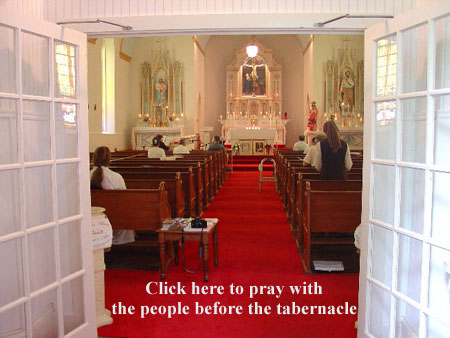
| Shepherds of Christ Daily Writing |
 |
November 19, 2009
|
November
20th Holy
Spirit Novena |
The Novena Rosary
Mysteries |
We can send Fr. Joe's
homily book to a priest for 75¢.
Can you please help us get
these homilies to the priests?
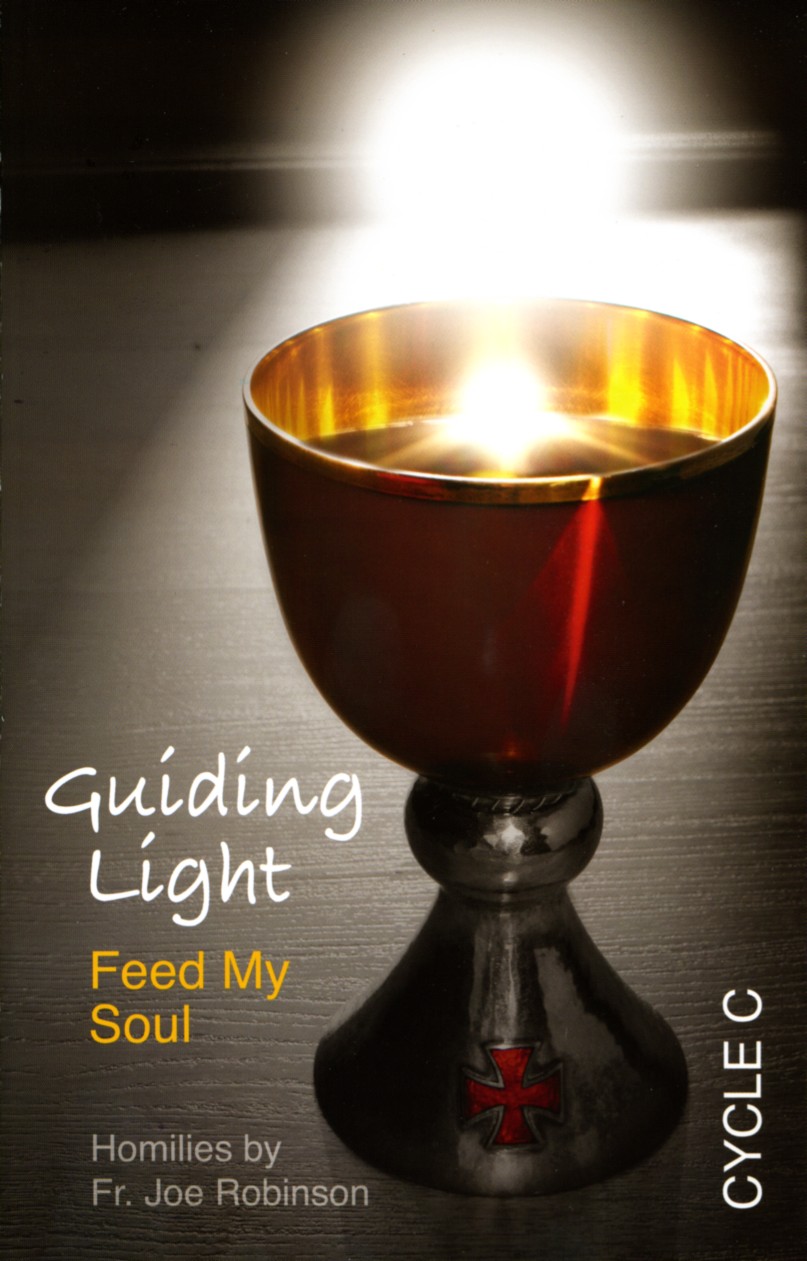
Please help us with your donation.
Call Shepherds of Christ
1-888-211-3041
Please pray for an
urgent intention.
November
19, 2009
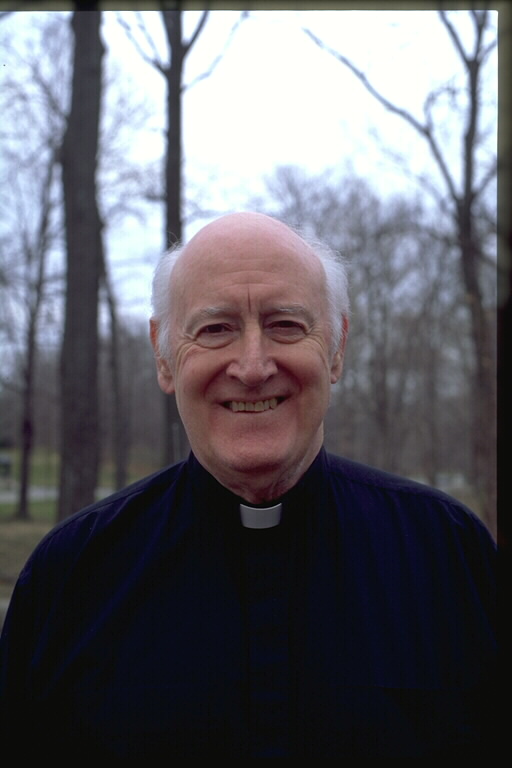
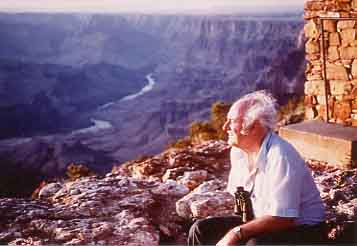
Fr. Carter had a dream.
Life in the Spirit
Fr. Carter says:
St. Paul tells us, "We have not received the spirit of the world but the Spirit that is from God, so that we may understand the things freely given us by God" (1 Cor 2:12). This particular text admirably serves the discussion of mysticism. Mysticism is the lived awareness, to a highly developed degree, of what it means to live the God-life. It is a profound realization of what it means to participate in God's life through grace. The above text reminds us that the Holy Spirit has been given to us to teach us how to live this God-life, this Christ-life. The Spirit perfectly understands the life of God, and he perfectly understands our participation in that life. He is the perfect teacher who instructs us how to live and develop this life, ideally to its mystical heights.
The Holy Spirit, consequently, is with us to guide us in our life in Christ. He continually desires to deepen the Christic, Trinitarian image within us. While by no means pretending to be exhaustive, let us consider some of the truths and practices pertinent to life in the Spirit.
The Spirit desires that we constantly seek out Jesus. Whatever the Spirit wants to tell us, along whatever path he desires to lead us—all this in some way is contained in the mystery of Christ. To be formed in Christ under the gentle but sure touch of the Spirit means that we must be open to the spiritual lessons contained in the various mysteries or events of Christ's life. This is especially true of the two central and summary mysteries, Christ's death and resurrection. We must consistently strive to have the proper perspective concerning these two key events. Spiritual writing has not always presented such a perspective. For many years a considerable portion of spiritual writing and teaching seemed to present the cross dimension, or dying with Christ, as if it were to receive almost exclusive attention. That we should be living resurrection upon this earth, as well as looking forward to its culmination in eternal life, was often not properly emphasized. To live resurrection in the here and now means to increasingly partake of resurrection peace, joy, happiness and fulfillment. Our incorporation into Christ's passion and death is a means to a life of resurrection here on earth as well as in eternity.
Today, we must guard against the opposite danger—incorrectly emphasizing resurrection with the consequent effect of removing the cross aspect from its proper place in Christian consciousness. We must always be aware of the words of Paul: "For Christ did not send me to baptize but to preach the gospel, and not with the wisdom of human eloquence, so that the cross of Christ might not be emptied of its meaning" (1 Cor 1:17).
The Spirit, then, desires to lead us to a consistent and balanced contact with Christ. Some of the means we should use to assure this contact are participation in liturgy, reading of Scripture, and prayer.
The mention of prayer easily leads us to another important aspect of life in the Spirit—how the Spirit guides us in making the proper decisions in the following of Christ. Among the various purposes of prayer is seeking such guidance from the Spirit. In prayer the Christian asks for the necessary light to make decisions according to the teaching and example of Jesus. In prayer one asks for the grace to see persons, places, things, circumstances, according to a Christian perspective. Prayer, then, is necessary for proper decision-making because it is a special source of light for the intellect. Prayer is also a special source of strength for the will. Prayer gives us the strength and courage to make correct decisions even though these at times are very difficult or unpopular ones, ones which may make life unusually demanding for a period of time.
As we seek the light of the Spirit during prayer, we must be aware that not everything we originally think is an illumination of the Spirit actually is such. In other words, there are false lights or illuminations. We must, therefore, be able to distinguish between true and false lights. As St. Ignatius of Loyola tells us, we must consider the entire course of what we think are the enlightenments of the Spirit.1 We must consider their beginning, middle, and end. If the entire course is good and directed to what is right, then we have assurance our lights are according to the Spirit. A false light could begin by presenting us with a good, but the end point, and possibly also the middle point, discloses the false light in its true character. Such a light would lead us to what is evil, or less good.
As we prayerfully consider the various options involved in a decision-making process, we begin to experience a sense of peace and clarity relative to one of the options. This usually seems to happen in a more gradual manner, but it also can occur rather suddenly. This experience of peace and clarity is one of the great signs pointing to the decision which the Spirit desires we make.
Just as we can be subjected to false lights, we can also experience false peace. For example, we can experience a certain peace because the decision we are about to make will relieve us of a considerable burden. The peace, however, is short-lived. We begin to feel dissatisfied with the prospective decision, ill-at-ease about actually choosing this particular action. Recognizing the briefly experienced peace as a false sign, we then continue the discernment process.
We must also realize that the experience of true peace in in the decision-making process does not guarantee that all anxiety is removed. In choosing a certain option, we are indeed guided by the experience of peace, but there can also be certain fears attached to our choice. There can also be aspects of the decision not to our liking. The experience of peace, however, remains dominant, giving us reasonable assurance we have chosen correctly in the Spirit.
In striving to make decisions in the Spirit, we must also be aware of another important principle: as far as possible, we should never make decisions, especially important ones, when we are in a state of desolation. In such a state we are in danger of making decisions which are not in accordance with the Spirit. Let us consider some of the words of St. Ignatius concerning desolation: "I call desolation ... darkness of soul, turmoil of spirit, inclination to what is low and earthly, restlessness rising from many disturbances and temptations which lead to want of faith, want of hope, want of love ...."2
As we progress in our discussion of principles and practices regarding life in the Spirit, let us now consider the concept of spiritual freedom. Growth in this freedom is one of the great signs of spiritual progress. Spiritual freedom is the ability to relate to persons, places, things, circumstances, and all else according to God's will. It means we are free enough to live in the manner God desires. Spiritual freedom means we are not wrongfully attached to this or that—an attachment which prevents us from following the lead of the Spirit.
As we are using the idea of spiritual freedom, a lack of such does not imply a person is not responsible for wrongful action. It simply means one abuses freedom, that one is here and now attached to a particular attitude or desire which leads one to go against the Spirit's lead.
St. Ignatius of Loyola and St. John of the Cross are two of the great masters regarding growth in spiritual freedom. They do not use the same type of language, but their message is basically the same—one must take whatever means are necessary to put oneself at the disposal of God. One must labor at breaking the inordinate attachments which lead one to go against God's will. One must develop the spiritual freedom necessary to decide according to the Spirit's guidance.
The more the mystical process develops, the more this spiritual freedom takes deeper root in a person. Growth in mysticism includes a growing desire to be possessed by God, to do whatever he wants, to accomplish his will at all costs. All this describes a person who is truly free, a person who uses freedom to accomplish one's God-given destiny.
Growth in spiritual freedom is accompanied by growth in spiritual peace. Here, then, we wish to expand upon this concept of peace which we earlier discussed in connection with prayer and its decision-making process. For we should cultivate spiritual peace not only relative to discernment, but also as it pertains to all aspects of our lives.
To maintain oneself in a state of peace is extremely important for life in the Spirit. We can best listen to the Spirit and respond to his lights when in a basic peace of spirit. We may speak of three different kinds of this peace.
The first type is not of everyday occurrence. It is that feeling of peace which permeates all aspects of our being to such an extent that we can, as it were, almost taste the peace. We seem to feel it flowing through the total person. Again, this experience is not the ordinary fare.
A second type of peace is one which is our more customary companion on the spiritual journey. It is of a calmer nature, sometimes even accompanied by considerable spiritual dryness. It is that kind of peace which we experience on a rather daily basis. It is present amid the ordinary successes, troubles, joys, and anxieties of everyday existence. If it does not raise us to the ecstatic level of the first kind of peace, it is, nevertheless, a welcome companion. It enables us to go about our life in the Lord with a basic joy, enthusiasm, trust, and optimism.
The third kind of peace is, as is the case with the type first described, of a more rare occurrence. It is that peace which we should strive for even though we are presently experiencing very significant—perhaps even severe—suffering of one kind or other. This mode of suffering has the capacity to disturb us mightily, to confuse us, to narrow our perspective. We must, then, make very special efforts to go deep down to the center of our being where there is that peace which even deep suffering cannot remove. When we reach this centerpoint, when we actuate this deep-rooted level of peace, we are in a position to confront the suffering as the Spirit desires. We are in a position to allow him to guide us through the suffering in a manner which promotes the pattern of death-resurrection. We rise from the experience more spiritually mature, persons capable of deeper love of God and neighbor.
As we progress to other attitudes necessary for life according to the Spirit, it is of great importance that we mention love of neighbor. A dynamic awareness and loving concern for our neighbor is an extremely important sign that we are truly alive in the Spirit. This seems so theoretically obvious to us, but in the day-in and day-out existence of even committed Christians this criterion does not always receive the attention it should. In his first epistle, St. Johnappeals to love of neighbor as a special sign of our walking in the Spirit: "Whoever says he is in the light, yet hates his brother, is still in the darkness. Whoever loves his brother remains in the light, and there is nothing in him to cause a fall" (1 Jn 2:9-10). Another passage: "Beloved, if God so loved us, we also must love one another. No one has ever seen God. Yet, if we love another, God remains in us, and his love is brought to perfection in us" (1 Jn 4:11-12).
Flexibility of will is another indication we are properly listening to the Spirit. To determine rigidly to adhere to certain courses of action no matter what is contradictory to the concept of being open to the Spirit. A word of caution, however, is necessary here. This flexibility of spirit does not mean instability. There is a basic stability necessary in the following of Christ. This stability is itself a sign we are corresponding to the Spirit's guidance.3 Flexibility of spirit does not mean departing from our basic way of life in Christ. The flexibility we are describing is rather an aspect of openness to the Spirit's guidance. This flexibility is a disposition which excludes a preconceived pattern of life in Christ which is hostile to the legitimate changes, modifications, and adaptations which one is called to make at certain junctures of the spiritual journey.
In discussing our life in the Spirit, we should say a few words concerning spiritual direction. The term itself basically gives its own definition. Spiritual guidance helps us lead our spiritual life—life according to the Spirit.
The role of spiritual guidance is rooted in the communal aspect of Christian existence. We do not go to God alone. In so many different ways, we are meant to help others achieve their destiny. In turn, we are meant to receive assistance from our brothers and sisters in the human family. Receiving spiritual guidance is one implementation of this social dimension of the Christian life.
There are numerous ways we receive guidance in our Christian existence. Receiving instruction through homilies and retreat conferences, attending seminars, workshops, and lectures on various aspects of the spiritual life, pertinent and sound advice received from a friend or marriage partner—these are some of the ways in which guidance comes our way.
There exists, consequently, this more general mode of spiritual direction. However, we can also greatly profit from the more individualized mode. According to this framework, one chooses a spiritual guide with whom one meets on a more or less regular basis. The frequency depends on various factors. Beginners in the spiritual life usually require more frequent meetings until they become solidly grounded in fundamentals. Times of particular trial offer another occasion for more frequent sessions with a guide, as do times of critical decision-making.
The fundamental task of the spiritual guide is to help one discern the action of the Spirit. To achieve this, the guide must be a good and patient listener. As one commentator says, "A lot of people expect us to question them, but it is important to accustom them not to count on our questions, but to talk on their own accord. It is only after we have listened to them for a long time like this that we shall be able to ask the essential question."4
Listening is of such importance because it allows the guide to see how the Spirit seems to be leading this particular person. Knowing this, the guide can, asking the proper questions and making pertinent comments,
intelligently make his or her contributions in aiding the person's ongoing openness to the Spirit. The guide, consequently, is not out front, as it were, leading the person according to a preconceived path of how he or she is to follow the Spirit. Of course, there are certain fundamentals of the spiritual life which are the same for all, and a good guide will operate according to these. Since each person is unique, however, the Spirit leads each according to a pattern which will in various ways differ from that of others.It is obvious, then, that a person should choose a guide with whom one feels comfortable and with whom one is willing to share the basic essentials of one's interior life. Unless the guide knows these, he or she cannot properly aid the person in following the lead of the Spirit.
Besides being a good listener, a guide should possess other basic qualities. One should obviously possess requisite knowledge of the spiritual life. Requisite knowledge is a relative concept. For example, the knowledge required to direct a beginner in the spiritual life is obviously less than that required to direct one who has entered the mystical state. A good guide should also possess considerable prudence—to know how and when to apply spiritual principles to particular individuals. Knowing how to point out errant ways is also of obvious importance. To possess not only a theoretical knowledge of the spiritual life, but also that knowledge gained through one's own living of the ways of the Spirit is a desired characteristic. These, then, are some of the qualities a good spiritual guide should possess.
As we near the end of our considerations regarding life in the Spirit, it is most appropriate that we make mention of Mary. Just as Mary cooperated with the Holy Spirit in bringing Jesus into this world, so is her cooperation with the Spirit present regarding each of us. Under the Spirit she desires to bring us to a maturity in Christ. Her concern, her care, her love for us is beyond our full comprehension. Under her maternal protection, we go to the Father with Christ and by the Spirit. Truly she is our spiritual mother: "Standing by the cross of Jesus were his mother and his mother's sister, Mary the wife of Clopas, and Mary of Magdala. When Jesus saw his mother and the disciple there whom he loved, he said to his mother, 'Woman, behold, your son.' Then he said to the disciple, 'Behold, your mother,'" (Jn 19: 25-27).
As we surrender more and more to the Spirit and Mary and become increasingly formed in the image of Christ, our lives become more mystical. We grow in the awareness that truly to live is to live the God-life in Christ. Increasingly we live by God's love, by his wisdom, by his strength. Our awareness, and indeed, our entire persons become increasingly transformed in God. An aspect of this awareness is a growing realization that, "We have not received the spirit of the world but the Spirit that is from God, so that we may understand the things freely given us by God" (1 Cor 2:12).
Notes
1. Cf. The Spiritual Exercises of St. Ignatius, translated by L. Puhl (Westminster: Newman Press, 1951), Nos. 332-334.
2. Ibid., No. 317.
3. Cf. St. Francis de Sales, On the Love of God, translated by J. Ryan (New York: Doubleday, 1963), Bk VIII, Ch. 13, pp. 84-87.
4. Jean Laplace, The Direction of Conscience (New York: Herder and Herder, 1967), p.173.
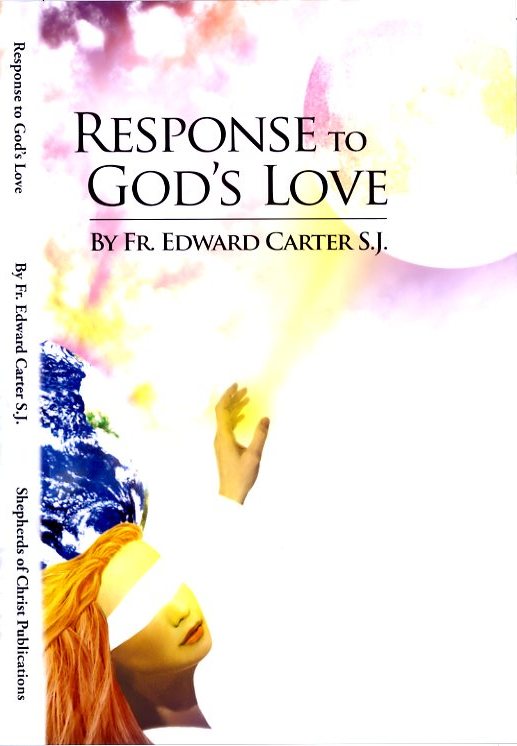
Available for $10.00 plus postage
1-888-211-3041
Call Kathleen
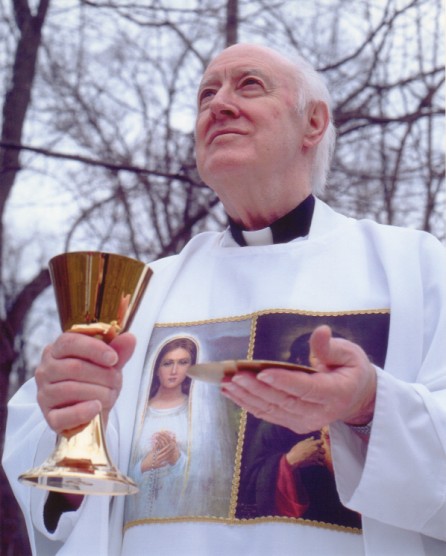
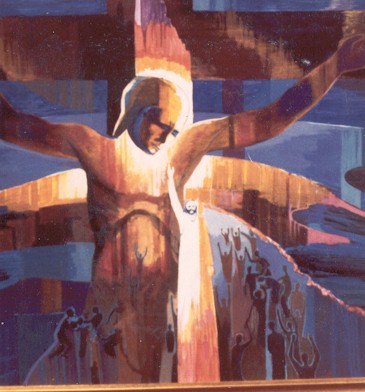
From Death/Resurrection Chapter
we meditate in this Rosary
One of the most traditional forms of the experience of the cross—that is, of dying with Jesus—that spiritual masters have always treated is self-discipline or asceticism. All forms of life demand self-discipline: The athlete must subject himself or herself to rigorous training; the musician must endure long hours of practice; the doctor must be willing to order his or her life to the rigorous demands of the medical profession.
Sorrowful Mysteries
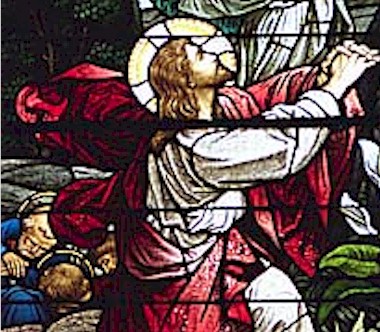
Agony in the Garden
(1) Christ suffered for His precious souls that
would be lost because of their sin.
Christ was in such anguish He sweat blood.
(2)
Christ has structured the Christian life by the way he lived, died, and rose from the dead. It is obvious, then, that the pattern of death-resurrection must be at the heart of the Church's life. Individually and collectively, we continually die with Christ so that we may continually rise with him. Thus, we pass over in a process of continued religious transition to a greater participation in Jesus' resurrection. It is true that our participation in Christ's resurrection will reach its completion only in eternity. Nevertheless, we begin the life of resurrection here upon this earth, in the here and now of human life, in the midst of joy and pain, in the experience of success and failure, in the sweat of our brow, in the enjoyment of God's gifts. As Christians, we should have a sense of growth concerning our here-and-now life of resurrection. Some Christians seem to have a rather static view of the Christian life. They do not seem to have a vital and efficacious realization that the Christian life, centered in death-resurrection, should become more conscious, more experiential, more dynamically relative to daily existence.
(3)
We cannot maintain the life of resurrection or grow in it without a willingness to suffer. This does not mean that we need to feel overwhelmed and heavily burdened by the suffering in our lives. The greater portion of suffering for most Christians seems to be an accumulation of ordinary hardships, difficulties, and pains. At times, however, deep suffering—even suffering of agonizing proportions—can enter one's life. During these oppressive periods of suffering, a person's sense of anguish can become so great that the prospect of continuing life becomes an agony in itself. Whether the sufferings of Christians are of either the ordinary variety or the rare and extreme type, Christians must nevertheless convince themselves that to properly relate to the cross is to grow in resurrection—and for an individual Christian to grow in resurrection means that he or she will also have an increased capacity to help give resurrection to others.
(4)
The Christian life, too, has its own form of discipline or control that has as its comprehensive purpose the greater assimilation of the Christian's total being to Christ. Christian self-discipline, or asceticism, allows for the proper development of the Christ-life in all its dimensions. Like all forms of authentic discipline, it is at the service of life; when it is properly exercised, asceticism helps us to grow in our capacity to love God and others.
(5)
This proper, grace-inspired control over the complete person is necessary because the various sense and spiritual faculties do not automatically follow the lead of grace. Because of original sin and personal sin, there are various tendencies within us that, if they are not properly controlled, will lead us away from Christ and our spiritual development. The Christian, therefore, must be willing to
(6)
Regarding our intellectual lives, there are various tendencies inimical to the spiritual life that must be disciplined. There can be a laziness, for instance, that might prevent the proper pursuit of study that is necessary for our own particular role in the Church. There can be an unwholesome curiosity that might lead us to want to know that which is pleasing, rather than, first of all, that which is necessary. There can be an intellectual pride that might manifest itself in various ways; some people, for example, find it extremely difficult to be open to the ideas of others or to admit their own mistakes.
(7)
The will, the decisive faculty of the human person, must receive special attention. It must become both supple and strong: supple in order to be open to the varied movements of the Holy Spirit; and strong in order to guide the entire person, including those forces that can so powerfully lead away from God. Concerning concrete decision making, there are two extremes that must be avoided: On the one hand, we must avoid precipitous action that is devoid of reflection that is rooted in an appropriate openness to the movements of the Spirit; on the other hand, we must not fall prey to the habit of indecision. Some people are prone to spending an excessive amount of time in making decisions about even the simplest matters. Life is short, and we must condition ourselves to make decisions after appropriate reflection, which, in many of our ordinary actions and decisions, is practically instantaneous. Unhealthy fear and other factors that are responsible for indecision must be curbed despite the great pain that this can, at times, cause for certain temperaments.
(8)
The faculties of memory and imagination must also be controlled. These can be of great value if properly guided; if they are not properly guided, however, they can, in their unruliness, become great obstacles to spiritual progress. An undisciplined memory and imagination can, for example, seriously interfere with our prayer life. Similarly, memory and imagination that are not properly controlled can also give rise to numerous temptations against the various virtues.
(9)
We must also properly control the emotions. A considerable portion of past spiritual literature has not given due allowance to the role that God intends the emotions to exercise. When we speak of controlling the emotions, therefore, we are not suggesting either an aggressive repression or an inhuman rigidity; rather, we speak of a control that permits the emotions to contribute to the richness and overall value of our actions. We must remember that the emotions, when they are properly integrated with the movements of the intellect and will, enhance the goodness of our acts.
(10)
It is obvious, however, that we must strive to discipline the emotions' evil tendencies if these emotions are to contribute to spiritual growth. The emotions can cause havoc if such a discipline is lacking. At times, they can reduce a person to an almost brute existence; at other times, they can seriously constrict a person and, consequently, seriously impede the proper exercise and development of the Christian life.
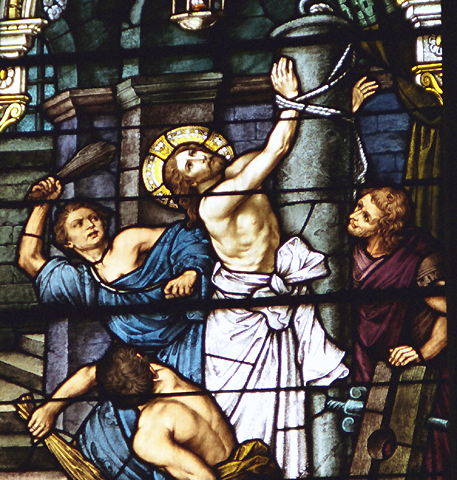
Scourging at the Pillar
(1) Jesus was whipped for our sins.
It is obvious, however, that we must strive to discipline the emotions' evil tendencies if these emotions are to contribute to spiritual growth. The emotions can cause havoc if such a discipline is lacking. At times, they can reduce a person to an almost brute existence; at other times, they can seriously constrict a person and, consequently, seriously impede the proper exercise and development of the Christian life.
(2)
Renunciation is another form of dying with Jesus that, over the ages, has been given much attention in the teaching of the spiritual masters. Indeed, the New Testament itself attests to the undeniable role that renunciation plays in the Christian life. The gentle St. Luke, for example, teaches with a peculiar intransigence Jesus' message of renunciation—a message that Jesus himself lived. Renunciation was by no means the only aspect of Christ's life, but it was an undeniable one. Christians, because they are followers of Christ, must also include renunciation in their lives regardless of their individual vocations. Again, it is well to remind ourselves that the cross is always intended to be connected with life and love. Paradoxically, then, we embrace renunciation for the sake of life. This was the purpose of renunciation in Jesus' life, and it must have the same purpose in the Christian's existence. Let us now consider some of the various ways in which the principle of renunciation applies.
(3)
Self-discipline or asceticism, which we have already discussed, does not necessarily include the aspect of renunciation. A person can exercise self-discipline in the positive use of created goods, and renunciation would not be involved; rather, the person would be relating to a created good according to God's will. Renunciation is, however, sometimes related to the practice of self-discipline; a person cannot always properly relate his or her total being to God's creation unless, from time to time, he or she is willing to renounce particular goods and values. Consider this example: A person will not always properly employ his or her external senses in using God's creation unless, at times, he or she denies the senses what they naturally desire. If we are not willing to admit this, we are being falsely optimistic about human nature. There is a sinful element within us that inclines us to a misuse of creation. To control this tendency toward misuse, we must exercise renunciation of those goods toward which our various spiritual and sense faculties are oriented.
(4)
In addition to being an aid to self-discipline, there are other uses of renunciation. The choice of a particular vocation or life's work, for instance, demands a renunciation of various other created goods and values. A person who chooses marriage has to be willing to sacrifice certain values and activities that might well be appropriate for a single person, but are incompatible with the married vocation. The Christian scholar, who is called by God to make his or her contribution to the life of the Church in the academic sphere, must also learn the lesson of renunciation; such a person cannot be true to the demanding work of scholarship unless various human values—all of which are good in themselves—are nevertheless sacrificed.
(5)
Another use of renunciation is its special witness to the transcendent aspect of the Christian life, one element of which is that our life of grace is a participation in the transcendent life of God. This life has a radical thrust of desiring God as he is in himself; this particular desire will not be completely satisfied until we achieve the beatific vision in which we will possess God as he is in himself, without the mediation of the world. Here on this earth, however, we can, to a certain extent, go out to God as he is in himself. Among the methods for achieving this goal is the practice of renunciation. Speaking of this kind of renunciation, which is expressive of transcendent love of God, Karl Rahner observes: "For such renunciation is either senseless or it is the realized and combined expression of faith, hope and charity which reaches out toward God precisely insofar as he is in himself, and without any mediation of the world, the goal of man in the supernatural order" (Theological Investigations, vol. 3, pp. 51-52). God, then, wants us to seek him not only as he is immanent in creation, but also as he is transcendent in himself. To reiterate, one way to achieve this is through the prudent, periodic renunciation of created goods and values.
(6)
We have been discussing two main forms of dying with Jesus, namely, self-discipline, or asceticism, and renunciation. These traditional forms of the Christian cross actually permeate the experience of numerous and various kinds of pain, suffering, hardship, bearing with the difficult—whatever name one wishes to apply. Let us consider some of these ways in which we are daily called to mystically share in the death of Jesus.
(7)
A common form of suffering is the experience of loneliness.
There are two basic kinds of loneliness—that which need not be and that which cannot be avoided. The first type of loneliness results from the fact that we are not in proper touch with our true selves, with God, or with others; the second type results from our existential situation as wayfarers, as pilgrims, who have not yet arrived at our final destination. The pain that results from the first type need not be, and we should work to eliminate its causes. The suffering and dying that are related to the second kind, however, are inevitable. As Christians, we should use this suffering and dying to grow in various ways, among which is the maturing realization that we have no lasting home here on earth.
(8)
There is, in addition, the very prosaic type of suffering that is involved in the proper living of each day. There is nothing dramatic about this form of pain, and, precisely because it seems so uneventful, it is very difficult to properly relate to it in a consistent fashion. On particular occasions, we might feel that a quick death by martyrdom would be preferable to the daily dying that involves all sorts of little sufferings. But this daily dying is a precious type of suffering, and to grow in the realization of its importance is a significant sign of spiritual progress. It is a sign that we have the spiritual keenness to comprehend that God so often situates the cross within the ordinariness of everyday life.
(9)
Crucial decision making is also a distinct form of dying. Making a decision, we realize, is extremely important for both ourselves and others. There might be two possibilities or three or even more. We might seek advice from others, but in the last analysis, we know—oh, how well we know—that, ultimately, we alone must make the decision before God. We pray for light and strength, for we realize that we need help not only to make the proper decision, but also to properly deal with the pain that is inevitably involved.
(10)
The experience of failure is another suffering that we encounter in various degrees along the path of life. Some fail in their attempts to achieve the type of employment they so much desire; others fail to perform properly once they have been so employed. Some are not very successful in initiating interpersonal relationships; others are not very successful in maintaining the ones in which they do become involved. Some experience failure because they strive to accomplish too little; others experience failure because they strive to do too much. Some encounter failure because they have not given the proper effort; others feel failure's pain despite their conscientious perseverance. In these and in other types of failure there is a double pain—the pain of having failed and the pain in having to begin over again. The pain of having failed, however, must not be wasted; we must use it to become better persons. If we do use it, we are able to cope more maturely with the effort that is involved in beginning afresh.
Experiencing various types of transition along the path of life also produces its own kind of pain. Periods of transition from one age of life to another are numerous, and some are obviously much more radical than others. The transitions from childhood to adolescence, from adolescence to young adulthood, from young adulthood to middle age, from middle age to old age produce various, and sometimes rather intense, kinds of sufferings. There is the classic kind of pain that adolescents experience, for example, as they grope for some kind of self-identity, as they try to cope with various types of peer pressure, as they struggle for a new kind of relationship with parents because their childhood relationship no longer suffices. These periods of transition, or life-stages, also involve changing interests and goals; that which held our interest at one stage of life leaves us bored at another. To establish a new set of interests and challenges is sometimes painful, but not so painful as the boring vacuum that we must exist in if we fail to replace those now-dead interests and goals with new ones.
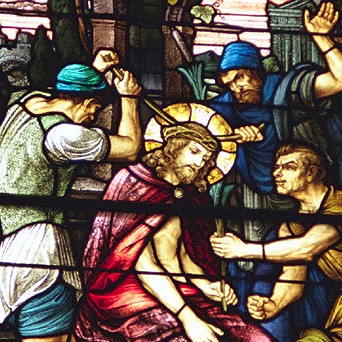
The Crowing with Thorns
(1)
Rejection, in various forms, is another pain not uncommon to human experience. Rejection because of race, religion, or ethnic origin has been, sad to say, a rather prominent part of our country's history. Blacks, in particular, have felt the wrath of racial rejection and discrimination. Others, too, have not been immune—this group includes, among others, American Indians, Puerto Ricans, and Mexican-Americans.
(2)
Although we ourselves might not have suffered racial, ethnic, or religious rejection, we are certainly susceptible to other types. We may have experienced, for instance, a certain ostracism in not being accepted—or being only reluctantly accepted—by this or that group, by this or that organization. When our ideas and opinions are not accepted by others, we feel the sting of yet another type of rejection. Further still is that very painful yet all too common rejection of not feeling loved by the person whom we dearly love.
(3)
The type of rejection that we experience—no matter what it might be—carries with it its own kind and degree of suffering that we can neither deny nor instantaneously cause to go away; we can, however, profit from its painful presence. One of the things we must do in order to grow from the rejection that we experience is to refuse to harbor bitterness against the person or persons who have caused us pain. Not to be bitter can be difficult—at times, it can be very difficult. If we do remain bitter, however, our suffering is increased by a type of pain—the pain of bitterness—that is not growth promoting, but is, rather, pernicious to the well-being of our personality.
(4)
The experience of various kinds of uncertainty is another type of suffering, or dying. The list of examples of human uncertainty is a long one. There is the uncertainty that is connected with the approach of a first experience: the young doctor who is still in training, for example, is understandably apprehensive as he or she prepares for his or her first surgery. There is the uncertainty of the young man and the young woman who are about to marry. Both begin to realize the uncertainties that are attached to marriage: Am I really marrying the right person? Will the children be normal and healthy? Will my partner love me over a lifetime, or is it possible that love will turn to coldness or even hatred? Likewise, the young businessman wonders whether the financial investment that he is about to make will result in increased earnings or ultimately lead to bankruptcy. There is also that common uncertainty that has plagued men and women of our contemporary age—namely, the question of whether life as we now know it on this earth will suddenly end in a nuclear holocaust.
Christians, of course, experience these same uncertainties to the same extent that non-Christians experience them. Christians, however, precisely because they are Christians, should react to uncertainty and assimilate it in a manner that will differ from that of non-Christians. The Christian life is, after all, supposed to extend to all the dimensions of authentic human existence—including the experience of uncertainty.
(5)
There is, however, a way in which Christians experience uncertainty in a manner that differs from non-Christians. There are specific uncertainties that explicitly arise out of Christian practices. Let us consider a few examples. In deciding one's basic state of life, the doubt, confusion, and anxiety that can temporarily accompany a choice of vocation can be agonizingly painful for some people. There are, in addition, the uncertainties and obscurities that, at times, accompany spiritual development in general. In the practice of prayer, for instance, there can be dryness, or an apparent inability to encounter God, even though God is really present to the person. There can also be a certain repugnance as one feels the demanding effort that is required to pray in present circumstances, as well as the bothersome uncertainty that makes us wonder whether our prayer is the proper type for us here and now.
What is more, various uncertainties surround the seemingly contradictory manifestations of God's will. There might be, for example, a certain indication that God would have us act in a particular way, yet his will, as it is channeled to us from a different perspective, seems to suggest another course of action. Of course, God never contradicts himself; the contradiction is only an apparent one. We are not without pain, however, as we work through the confusion and uncertainty.
(6)
How should we Christians act in times of uncertainty? We must be conscious of the two great realities of love and trust. First, we must try to be particularly conscious of how much God loves us in Christ. This deepened realization, in turn, will lead us to return that love in such a way that our love will be characterized by an abandoning trust in God's providence for us. Consequently, times of uncertainty can be times of tremendous growth. For we are creatures who all too often can become self-complacent before God; we are prone to forget just how weak and helpless we are without God. The discomfort of uncertainty, then, can help arouse us from this false sense of security because at these times we become more conscious of our helplessness and we approach God for guidance, strength, and consolation.
(7)
When we experience uncertainty we should also be aware that, although we do not possess all possible light, we do have enough light to properly cope. The general pattern of Christ's life is always before us as an example and can be lived out in circumstances of uncertainty as well as at any other time. We can also utilize particular means that can lessen or even dispel the uncertainty, or that will at least help us to properly cope. Examples of such means are prayer and the seeking of advice from competent persons—if the particular uncertainty indicates that the counsel of another or others would be helpful.
(8)
We have been discussing some of the specific ways in which we experience suffering. Let us now end this discussion in the same way that we began—by reminding ourselves of suffering's purpose in God's overall plan. Suffering, when it is properly encountered, leads us to a more mature Christian existence, that is, to an increased participation in Jesus' resurrection. If it is unchristian to flee the suffering that God intends for us (we are, of course, allowed to take proper means, as indicated by God's will, to dispel or alleviate suffering), it is also unchristian to view suffering out of perspective. We should view suffering, or dying with Christ, in relation to growth in the life that Jesus came to give us in abundance. As we properly encounter suffering, we are more and more cutting through the layers of the false self and increasingly coming in touch with the true, Christic self. If we live according to this true self, we become more capable of loving God and our fellow human beings. We become more vibrant personalities, more sensitive to the true, the good, the beautiful. We concentrate on the good that God's love has put in creation rather than on the evil therein that results from man's sinfulness.
(9)
Although we might endure suffering with a proper Christian perspective, this is not to say that we find it easy to suffer. We need constant motivation for the proper assimilation of the suffering that daily faces us. This motivation, in turn, must be centered in the remembrance of the one who has suffered before us:
Though he was harshly treated, he
submitted
and opened not his mouth;
Like a lamb led to the slaughter
or a sheep before the shearers,
he was silent and opened not his
mouth.
Oppressed and condemned, he was
taken away,
and who would have thought any
more of his destiny?
When he was cut off from the land of
the living,
and smitten for the sin of his people,
A grave was assigned him among the
wicked
and a burial place with evildoers,
Though he had done no wrong
nor spoken any falsehood.
—Is 53:7-9(10) Read Shepherds of Christ Rule
Given August 23, 2008
Religious Life
and life in the Shepherds of Christ Movement for Servants, Handmaids and
Apostles
Galatians 2: 19-20
...I have been crucified with Christ and yet I am alive; yet it is no longer I, but Christ living in me.
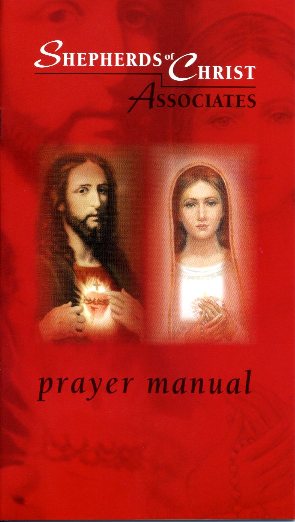
Luke 1: 46-55
The Magnificat
And Mary said:
My soul proclaims
the greatness of the Lord
and my spirit rejoices
in God my Saviour;
because he has looked upon
the humiliation of his servant.
Yes, from now onwards
all generations will call me blessed,
for the Almighty
has done great things for me.
Holy is his name,
and his faithful love extends age after age
to those who fear him.
He has used the power of his arm,
he has routed the arrogant of heart.
He has pulled down princes
from their thrones
and raised high the lowly.
He has filled the starving with good things,
sent the rich away empty.
He has come to the help
of Israel his servant,
mindful of his faithful love
—according to the promise
he made to our ancestors—
of his mercy to Abraham
and to his descendants for ever.
Galatians 2: 19-20
...I have been crucified with Christ and yet I am alive; yet it is no longer I, but Christ living in me.
For the spread of the devotion to the Hearts of Jesus and Mary culminating in the reign of the Sacred Heart and the triumph of the Immaculate Heart.
For the Pope.
For all bishops of the world.
For all priests.
For all sisters and brothers in the religious life.
For all members of the Shepherds of Christ Movement, and for the spread of this movement to the world.
For all members of the Catholic Church.
For all members of the human family.
For all souls in purgatory.
Excerpt from Response in Christ
by Fr. Edward J. Carter S.J.e) Relationship with Members of the Church
There is but one true Church of Christ. Yet this one Church has three different states of existence. There is the pilgrim Church, the Church of this world, composed of members who have received the grace of Christ and strive for its development. They have not yet obtained the goal of their efforts, as have the members of the heavenly Church, who enjoy God in eternal happiness. The Church suffering is an intermediate state of existence necessary for those who had not achieved the required purification as members of the pilgrim Church. Although there are these three phases of the Church's existence, there is a profound union existing between all the members. All these members possess the same basic life of grace in Christ, and this common life establishes the most intimate bonds of love. In our preceding chapter, we discussed the pilgrim Church. Let us now consider the Church suffering and the heavenly Church.
The members of the Church suffering are those who have departed from this life in an incomplete state of Christian development. Their development is incomplete in the sense that grace has not fully taken possession of them, and, as a result, they are yet closed in upon themselves to a greater or lesser degree. They as yet cannot open themselves out in complete love to the Triune God in the beatific vision. They must undergo a further purification, a purification which could have been achieved upon earth with merit. Now the purification must be achieved with no merit attached. The pain of this purification is mixed with the certain expectation of achieving the vision of God. We can hasten the advent of this vision for this people by the offering of prayers and other good works. Scripture itself refers to our action on behalf of those in purgatory in Chapter 12 of the Second Book of Maccabees beginning with verse 38.
The members of the heavenly Church are those in whom the life of grace has taken full possession and has reached its completion in the life of glory. Faith now is unnecessary, as the light of glory gives the human intellect a new strength and capacity for seeing God face-to-face. While the Christian was a wayfarer, he received the imprint of the indwelling Trinity as he shared in God's own life. Now in heaven that grace-life and possession of God reaches its completion—the absolute completion is not achieved, however, until the resurrection of the body. The divine persons give Themselves to the beatified in a profound union far surpassing that of the indwelling of the Trinity experienced here below.
This life of heaven is still the Christ-life, for just as we possess a share in Trinitarian life here below as mediated by Christ, and exercise this grace-life as structured by Him, so also in heaven is the mediation of Christ present. In the words of Rahner, "One always sees the Father through Jesus. Just as immediately as this, for the directness of the vision of God is not a denial of the mediatorship of Christ as man."13 And not only does the humanity of Christ unite the blessed to God, but also, in some way, to the whole of creation. This is merely a completion of what is begun here below, namely, the union with Christ in His humanity establishing the Christian in a special relationship with God, with other men, and with the whole of creation. We have a glimpse, therefore, of the fullness of life which members of the heavenly Church possess.
The heavenly Church, as St. Thomas says, is the true Church.14 The Church of this earth and the Church of purgatory are, each in its own way, reaching out in loving hope for the heavenly Jerusalem. Vatican II puts it very simply: "The Church, to which we are called in Christ Jesus, and in which we acquire sanctity through the grace of God, will attain her full perfection only in the glory of heaven."15
The members of the heavenly Church can help us in living our life of grace until we too share its fullness with them. Their power of intercession on our behalf is but another ramification of the communal aspect of Christianity. We are meant to help others grow in Christ. We, in turn, are intended by God to receive aid from others—yes, from members of the heavenly Church, as well as from those with whom we dwell here below.
Not only can we be aided by the saints' intercession, but the example of the canonized saints can also be of great value to us. They have concretely proved that full holiness is possible. Such an inspiration is of real worth when we are tempted to think that Christian sanctity in its higher degrees is impossible of attainment. Moreover, the canonized saints, in their diversity, teach us that there are many authentic versions of Christian holiness. They can be innovators in showing us that there are numerous possibilities in assimilating the mystery of Christ, although the basic assimilation remains the same for all Christians of all times. In the opinion of Rahner this is one of the chief roles the canonized saints exert in the life of the Church.16_____
13Karl Rahner, Theological Investigations, Vol. III (Baltimore: Helicon, 1967), p. 44.
14Cf. St. Thomas Aquinas, In Ad Ephes., c. 3, Lect. 3.
15Second Vatican Council, Constitution on the Church, No. 48.
16Cf. Karl Rahner, Op. cit., pp. 100-101.


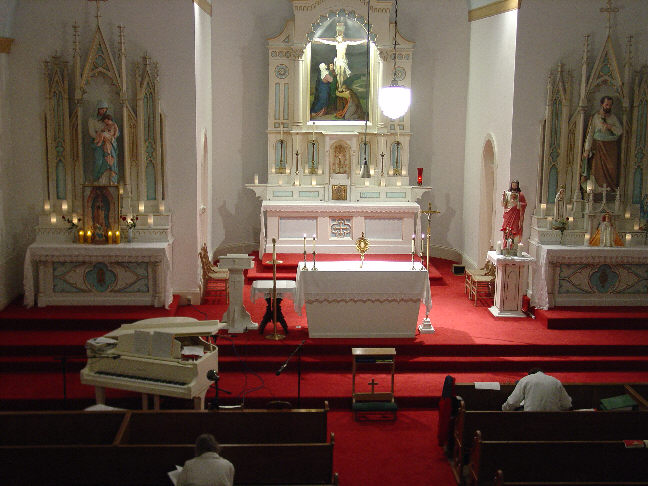
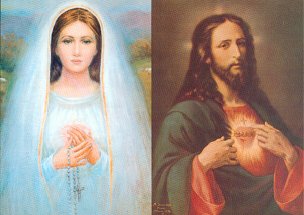
A Prayer before the Holy Sacrifice of the Mass
Let me be a holy sacrifice and unite with God in the sacrament of His greatest love.
I want to be one in Him in this act of love, where He gives Himself to me and I give myself as a sacrifice to Him. Let me be a holy sacrifice as I become one with Him in this my act of greatest love to Him.
Let me unite with Him more, that I may more deeply love Him. May I help make reparation to His adorable Heart and the heart of His Mother, Mary. With greatest love, I offer myself to You and pray that You will accept my sacrifice of greatest love. I give myself to You and unite in Your gift of Yourself to me. Come and possess my soul.
Cleanse me, strengthen me, heal me. Dear Holy Spirit act in the heart of Mary to make me more and more like Jesus.
Father, I offer this my sacrifice, myself united to Jesus in the Holy Spirit to You. Help me to love God more deeply in this act of my greatest love.
Give me the grace to grow in my knowledge, love and service of You and for this to be my greatest participation in the Mass. Give me the greatest graces to love You so deeply in this Mass, You who are so worthy of my love.
-God's Blue Book, December 27, 1995
Prayer for Union with Jesus
Come to me, Lord, and possess my soul. Come into my heart and permeate my soul. Help me to sit in silence with You and let You work in my heart.
I am Yours to possess. I am Yours to use. I want to be selfless and only exist in You. Help me to spoon out all that is me and be an empty vessel ready to be filled by You. Help me to die to myself and live only for You. Use me as You will. Let me never draw my attention back to myself. I only want to operate as You do, dwelling within me.
I am Yours, Lord. I want to have my life in You. I want to do the will of the Father. Give me the strength to put aside the world and let You operate my very being. Help me to act as You desire. Strengthen me against the distractions of the devil to take me from Your work.
When I worry, I have taken my focus off of You and placed it on myself. Help me not to give in to the promptings of others to change what in my heart You are making very clear to me. I worship You, I adore You and I love You. Come and dwell in me now.
-God's Blue Book, January 17, 1994
From the Shepherds of Christ
Prayer Manual
10. Prayer for Priests. "Lord Jesus, Chief Shepherd of the Flock, we pray that in the great love and mercy of Your Sacred Heart You attend to all the needs of Your priest-shepherds throughout the world. We ask that You draw back to Your Heart all those priests who have seriously strayed from Your path, that You rekindle the desire for holiness in the hearts of those priests who have become lukewarm, and that You continue to give Your fervent priests the desire for the highest holiness. United with Your Heart and Mary's Heart, we ask that You take this petition to Your heavenly Father in the unity of the Holy Spirit. Amen"
11. Prayer for all members of the Shepherds of Christ Associates. "Dear Jesus, we ask Your special blessings on all members of Shepherds of Christ Associates. Continue to enlighten them regarding the very special privilege and responsibility you have given them as members of Your movement, Shepherds of Christ Associates. Draw them ever closer to Your Heart and to Your Mother's Heart. Allow them to more and more realize the great and special love of Your Hearts for each of them as unique individuals. Give them the grace to respond to Your love and Mary's love with an increased love of their own. As they dwell in Your Heart and Mary's Heart, abundantly care for all their needs and those of their loved ones. We make our prayer through You to the Father, in the Holy Spirit, with Mary our Mother at our side. Amen"
12. Prayer for the spiritual and financial success of the priestly newsletter. "Father, we ask Your special blessings upon the priestly newsletter, Shepherds of Christ. We ask that You open the priest-readers to the graces You wish to give them through this chosen instrument of Your Son. We also ask that You provide for the financial needs of the newsletter and the Shepherds of Christ Associates. We make our prayer through Jesus, in the Holy Spirit, with Mary at our side. Amen"
13. Prayer for all members of the human family. "Heavenly Father, we ask Your blessings on all Your children the world over. Attend to all their needs. We ask Your special assistance for all those marginalized people, all those who are so neglected and forgotten. United with our Mother Mary, we make this petition to You through Jesus and in the Holy Spirit."
14. Prayer to St. Michael and our Guardian Angels:
"St. Michael the Archangel, defend us in battle. Be our safeguard against the wickedness and snares of the devil. May God rebuke him, we humbly pray, and do thou, O prince of the heavenly hosts, by the power of God, cast into hell Satan and all the other evil spirits who prowl about the world seeking the ruin of souls. Amen."
"Angel of God, my guardian dear, to whom God's love commits me here, ever this day be at my side, to light and guard, to rule and guide. Amen."
15. Pause for silent, personal prayer. This should last at least five minutes.
16. Act of consecration to the Sacred Heart of Jesus and the Immaculate Heart of Mary.
"Lord Jesus, Chief Shepherd of the flock, I consecrate myself to Your most Sacred Heart. From Your pierced Heart the Church was born, the Church You have called me, as a member of Shepherds of Christ Associates, to serve in a most special way. You reveal Your Heart as a symbol of Your love in all its aspects, including Your most special love for me, whom You have chosen as Your companion in this most important work. Help me to always love You in return. Help me to give myself entirely to You. Help me always to pour out my life in love of God and neighbor! Heart of Jesus, I place my trust in You!
"Dear Blessed Virgin Mary, I consecrate myself to your maternal and Immaculate Heart, this Heart which is symbol of your life of love. You are the Mother of my Savior. You are also my Mother. You love me with a most special love as a member of Shepherds of Christ Associates, a movement created by your Son as a powerful instrument for the renewal of the Church and the world. In a return of love, I give myself entirely to your motherly love and protection. You followed Jesus perfectly. You are His first and perfect disciple. Teach me to imitate you in the putting on of Christ. Be my motherly intercessor so that, through your Immaculate Heart, I may be guided to an ever closer union with the pierced Heart of Jesus, Chief Shepherd of the flock."
end of rule
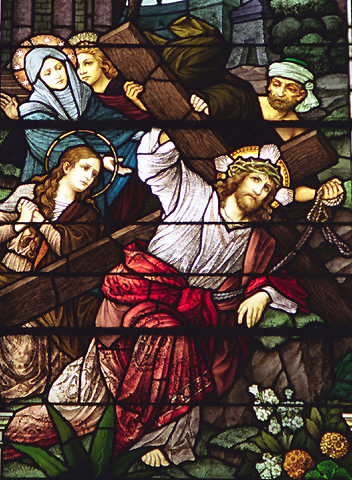
Carrying of the Cross
(1) Christ carried His cross with our sins.
Our incorporation into the mystery of Christ at baptism, and the gradual maturing of that life in the process of becoming, is centered in the pattern of death-resurrection. Indeed, the theme of death-resurrection is at the heart of salvation history. Let us briefly consider its place in the Old Testament, in the New Testament, and in God's ongoing self-communication, always remembering that any form of death—that is, any form of suffering—is meant to lead to greater life, greater peace, and greater happiness.
(2)
The theme of death-resurrection is at the heart of Old Testament history. The Jewish people, under the leadership of Moses, experienced death-resurrection as they were formed into the people of the covenant—Yahweh's people. In the great Exodus event, they escaped Egyptian slavery, went on to Mt. Sinai where the covenant was ratified, and then progressed to the Promised Land. As members of the Mosaic covenant—as Yahweh's people—the Jews experienced a religious transition; they passed over to a higher level of religious existence, to a more intimate union with God.
(3) August 23, 1993 - On His Passion
Jesus: My dear child,
I was condemned to death, death on a cross. They gave Me a big cross and made Me carry it. They stood around and glared at Me. It weighed on My shoulder and I pulled at it until it finally moved. Every step was almost impossible as I dragged it, weighing so heavily on My shoulders.My shoulder felt as if the bones inside would crack and the cross would fall through to the ground. I couldn’t drag it any more. I tried, I fell. I fell and its weight fell on Me. A guard hit Me with something sharp. It really hurt because he wanted Me to move, and fast! People were watching — on with the show! How dare I fall in the middle of the show! He hit Me again and the blow really stung Me. I got up because it hurt so badly. I tried to walk on.
My Mother was in the crowd. She looked at Me and her face looked red and hurt. Tears rolled down her cheeks like rain and as her eyes met Mine, I was hurt so by her sorrow! She was always by My side, silent and loving. She was My mother of love! She is always there next to you when you suffer.
I fell again and he (the guard) really hit Me. It (the cross) was so heavy that he and I together could barely move it. It seemed as I walked, heavier with the sins of the world heaped on it. My hands were bleeding. Blood ran from the wounds of My thorns and My head throbbed, seeming to make the wounds in My head bleed even more. Some of the Blood was dried, some of it running all over My Body. I had so many cuts and bruises — and people watched and laughed!
I am Jesus, Son of the Living God, and they laughed and mimicked Me! Oh, such hardened hearts! How vile can men’s heart become? The devil’s grip is paralyzing and crippling.
The walk was so long up a hill and over rocks — the cross had to be lifted over the rocks. My Body was bleeding so badly! My heart was pounding. I knew that the salvation of all men depended on My love. Therefore, I went through such agony.
I thought of My intense love for you — that many would go to heaven because of My suffering — and I continued to the top of the hill. At the top they laid Me on the cross and with a big hammer nailed My hands to it. It was the worst (suffering) yet. My hands were nailed with big nails and the big hammer. Oh, it was unbelievable! Then, as if that weren’t enough, with a big nail they nailed through both feet.
Then they lifted the cross and banged it into (a hole in) the ground. My shoulders ached from how I hung. My head bobbed and My neck ached and they laughed and said, "Now save Yourself." I hurt so much! I suffered this way for hours — which seemed like forever — and they glared at Me and laughed! My Mother watched in such agony.
For love of you, to My death I gave you My Body. My child, I shed My Blood and gave you My life that you might be with Me forever in heaven — not for a day, a month or a year, but forever with Me in heaven.
I am the true Bread come down from heaven. He who eats My Flesh will have life forever. For the drink I give you is My Blood and food you eat is My Body. Who would lay down his life for a friend? I did, for you. I love you this much, child. Forget about those who reject you. You have My life that I gave you and I give you life eternal.
I am the One true God. I am the Light of life. He who abides in Me will have life eternal, for the drink I give is My Blood and the food I give is My Body. Drink and eat and have everlasting life.
My child, that is all you need to know. Love one another and be good that you may enter into My kingdom.
end of August 23, 1993
(4)
This religious transition contained death-resurrection. For the Jews to become people of the covenant, to remain so, and to grow in the life of the covenant, it was necessary that they undergo a mystical or spiritual death. In short, the Jews had to be willing to pay a price; they had to be willing to bear with that which was difficult in covenant life; they had to be willing to die to that which was not according to Yahweh's will. This mystical death, however, had a very positive purpose; it was directed at life in the covenant and at growth in that life. This spiritual death, in other words, was aimed at resurrection.
Christ perfectly fulfilled the Old Testament theme of death-resurrection. In doing so, he, too, was experiencing a religious transition. He was passing over—gradually, at first, and then definitively in his death—to a new kind of existence, to the life of his resurrection, which he achieved not only for himself, but for all mankind. To achieve this new life of resurrection, Jesus was willing to pay the price; Jesus was willing to suffer, even unto death. That it had to be this way—that the only way Christ could have achieved resurrection was through suffering and death—was pointed out by Jesus himself to the two disciples on the road to Emmaus: "Then he said to them, 'What little sense you have! How slow you are to believe all that the prophets have announced! Did not the Messiah have to undergo all this so as to enter into his glory?' Beginning, then, with Moses and all the prophets, he interpreted for them every passage of Scripture which referred to him" (Lk 24:25-27).
(5)
Christ has structured the Christian life by the way he lived, died, and rose from the dead. It is obvious, then, that the pattern of death-resurrection must be at the heart of the Church's life. Individually and collectively, we continually die with Christ so that we may continually rise with him. Thus, we pass over in a process of continued religious transition to a greater participation in Jesus' resurrection. It is true that our participation in Christ's resurrection will reach its completion only in eternity. Nevertheless, we begin the life of resurrection here upon this earth, in the here and now of human life, in the midst of joy and pain, in the experience of success and failure, in the sweat of our brow, in the enjoyment of God's gifts. As Christians, we should have a sense of growth concerning our here-and-now life of resurrection. Some Christians seem to have a rather static view of the Christian life. They do not seem to have a vital and efficacious realization that the Christian life, centered in death-resurrection, should become more conscious, more experiential, more dynamically relative to daily existence.
(6)
We cannot maintain the life of resurrection or grow in it without a willingness to suffer. This does not mean that we need to feel overwhelmed and heavily burdened by the suffering in our lives. The greater portion of suffering for most Christians seems to be an accumulation of ordinary hardships, difficulties, and pains. At times, however, deep suffering—even suffering of agonizing proportions—can enter one's life. During these oppressive periods of suffering, a person's sense of anguish can become so great that the prospect of continuing life becomes an agony in itself. Whether the sufferings of Christians are of either the ordinary variety or the rare and extreme type, Christians must nevertheless convince themselves that to properly relate to the cross is to grow in resurrection—and for an individual Christian to grow in resurrection means that he or she will also have an increased capacity to help give resurrection to others.
(7)
One of the most traditional forms of the experience of the cross—that is, of dying with Jesus—that spiritual masters have always treated is self-discipline or asceticism. All forms of life demand self-discipline: The athlete must subject himself or herself to rigorous training; the musician must endure long hours of practice; the doctor must be willing to order his or her life to the rigorous demands of the medical profession.
(8)
The Christian life, too, has its own form of discipline or control that has as its comprehensive purpose the greater assimilation of the Christian's total being to Christ. Christian self-discipline, or asceticism, allows for the proper development of the Christ-life in all its dimensions. Like all forms of authentic discipline, it is at the service of life; when it is properly exercised, asceticism helps us to grow in our capacity to love God and others.
(9)
This proper, grace-inspired control over the complete person is necessary because the various sense and spiritual faculties do not automatically follow the lead of grace. Because of original sin and personal sin, there are various tendencies within us that, if they are not properly controlled, will lead us away from Christ and our spiritual development. The Christian, therefore, must be willing to exercise a reasonable self-discipline despite the difficulty that is involved. Moreover, this control must extend to all of the person's faculties.
(10)
February 27, 1997
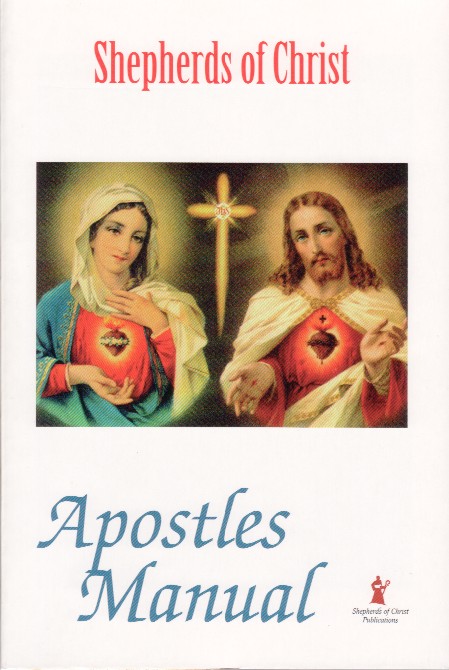
Rita
Ring
After
the Death, There is the Resurrection
My love affair is with You, my crucified Lord. I kiss Your cross and caress You tenderly. I smoother You with kisses and I know Your love.
This is love - to kiss the cross of Christ. I cursed the darkness and the light came across the sky, ever so gently as if it grew in intensity to a bright brilliant shade of glistening light. And in this I beheld my Beloved. I saw His glory in the wonders of the earth and I embraced Him, the divine, all-powerful, all Almighty Lord!
He took away those things I was attached to. I held on with a gripping hand. Oh, I cried out in pain and I heard the words in my heart: beyond the surrender is the real gift.
Is it not after the death there is the resurrection, after the dying, there is the glory?
Oh, my Divine Lord, I feel as if my eyes have crusted over. I laid down on the floor and pounded my fists to the earth. I did not see the miracle in the grass that touched my hand. I did not see the power and the might behind the work of endless beauty. A blade of grass, you say? Oh, yes indeed, for it lives and is not life the real miracle? For I am not a rock, but a living creature, created in the image and likeness of God and oh, you say, how much do you share in the life of the Divine Being? And I say, "I share through Baptism. He, God, gives me a sharing in His divine life!"
I pounded the earth and I cursed the darkness. I scoffed and I complained and beyond the horizon the sun slowly stole across the sky and the light appeared in glistening glory. The darkness was black and the night was cold. I heard the clamor of fear in my heart. I felt like screaming in that night and oh, I beheld the crucified Lord. He spoke no words to me, the Holy Spirit filled my heart with light and I saw the glory. I saw the resurrection, not with my earthly eyes, but with the awakening of a joyous heart within.
I saw the glorified wounds, the wounds once covered with blood, inflamed and red, gushing with deep, red blood. I saw the glistening wounds in the hands and feet and I knew behind His robe was the most tender of all wounds, the piercing wound to His side. It was there, the pierced wound of His most precious Heart. It was the wound of glory, from which His divine life would pour forth to a hungry Church. It would rain and fall as gently as the new fallen snow. It would go across the sky like the light and the souls would be transformed into the whitest light. The graced soul, oh, the glory of this soul, the soul that is filled with His divine life!
Oh, need I say more, my Lord? I see the life in a blade of grass. I see the tiniest potato bug with its dots and beauty and I behold the face of God. I behold life, His life, alive in us and in the world.
Well, the night was black, as black as black could be and the cold pierced my bones. I felt its chill go through my entire body and I wanted to scream and it happened—He gave me an outpouring of His life in my soul and my darkness was truly turned to light, another light, not the light of the eyes, a light of knowing God, the joy of beholding His heavenly embrace, the great illumination of another mystery. Oh, sweet gifts He gives when He gives me new knowledge of Himself. Sweet gifts He gives when, in an instant, I pray my rosary and the Holy Spirit fills my heart with lights and the mystery lights up and I know, I just know and I experience a great insight into God.
This is the reason for this letter, for I laid in my bed and I wanted to cry and I was deeply afraid for the devils pressed in as rocks poking at me and hurting my precious skin. I laid in bed and I went into the womb of my Mother and I asked for the Holy Spirit to flood me with His light and it came. I speak His words to you, they are the words He gives: death-resurrection, darkness-light, sorrow-joy, suffering and pain, but oh, the joy of His light, the joy of His glory, the sacrifice I offer to Him that He turns into blessings and I experience His glory. It is in the death there is the resurrection. It is in the anguishing days of lent we come to the glory of Easter.
So, my dear brothers, I walk the road to Calvary. I mount the cross and I die. I offer sacrifice and in the morning when the night is done I see the glory of the resurrection. I experience His joy in my heart.
So I went to bed and went into the womb of my Mother and the Holy Spirit flooded me with light and I united deeply to my precious Jesus on the cross. I knew Him and His love. I reminisced on all the places of deepest intimacy I had shared with Him and my heart burned. I wanted Him so close and I loved Him so much. I cried out, "I love You, I love You, I love You." In that moment I knew and wanted only Him. He had removed my bonds and set me free to be engulfed by His divine love. I then knew Him as never before, the most Holy One, in this union with Jesus.
I felt my great love for God the Father. I have been experiencing my littleness as a child and knowing my Father, seeing myself real little and knowing my Father and wanting, as a little child, to please Him. Then tonight I realized more His Fatherly love. I see myself depending on Him, needing Him, crying to Him, loving Him and then I realized His power and might and love coming to me.
So I knew in an instant. He just gives you a light and you know, you experience—I knew, I experienced the Trinity. I loved Them, all three Persons, so much and I loved Them as one, my heart, being consumed with the presence of God and sharing the love of each Person—love beyond all love, and I stopped to be in this embrace, wanting it to never end, for in this embrace I felt peace, a peace I had not felt before, so different from the days that proceeded this moment, the days of suffering and trial.
I mounted the cross. I felt the nails press deeply into my hands and feet. I felt the crown of thorns on my head. I said to Him, "Oh, why, my God, if You love me, do You make it so hard?"
And then I saw Him on the cross. I saw His mouth with blood running from the corner of it. I saw the body of a man, close to death. I saw His wounds, blistery and red, pouring out His precious blood. I saw the hollowness of His cheeks and the exhaustion of a body ready to expire in death. I saw the anguishing Lord who came to show us His way. His way is death and resurrection. His way is pain and glory. His way is the way to eternal life.
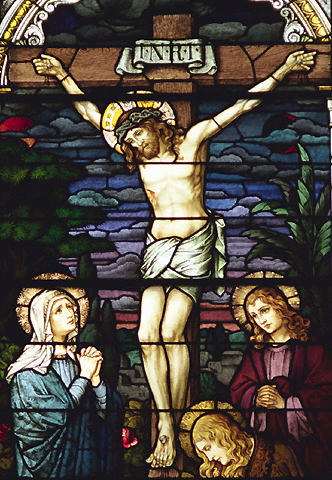
The Crucifixion
(1) Today's Readings
1 Maccabees 2: 15-29
The king's commissioners who were enforcing the apostasy came to the town of Modein for the sacrifices. Many Israelites gathered round them, but Mattathias and his sons drew apart. The king's commissioners then addressed Mattathias as follows, 'You are a respected leader, a great man in this town; you have sons and brothers to support you. Be the first to step forward and conform to the king's decree, as all the nations have done, and the leaders of Judah and the survivors in Jerusalem; you and your sons shall be reckoned among the Friends of the King, you and your sons will be honoured with gold and silver and many presents.' Raising his voice, Mattathias retorted, 'Even if every nation living in the king's dominions obeys him, each forsaking its ancestral religion to conform to his decrees, I, my sons and my brothers will still follow the covenant of our ancestors. May Heaven preserve us from forsaking the Law and its observances. As for the king's orders, we will not follow them: we shall not swerve from our own religion either to right or to left.' As he finished speaking, a Jew came forward in the sight of all to offer sacrifice on the altar in Modein as the royal edict required. When Mattathias saw this, he was fired with zeal; stirred to the depth of his being, he gave vent to his legitimate anger, threw himself on the man and slaughtered him on the altar. At the same time he killed the king's commissioner who was there to enforce the sacrifice, and tore down the altar. In his zeal for the Law he acted as Phinehas had against Zimri son of Salu. Then Mattathias went through the town, shouting at the top of his voice, 'Let everyone who has any zeal for the Law and takes his stand on the covenant come out and follow me.' Then he fled with his sons into the hills, leaving all their possessions behind in the town.
Many people who were concerned for virtue and justice went down to the desert and stayed there,
Luke 19:41-44
Lament for Jerusalem
As he drew near and came in sight of the city he shed tears over it and said, ‘If you too had only recognised on this day the way to peace! But in fact it is hidden from your eyes! Yes, a time is coming when your enemies will raise fortifications all round you, when they will encircle you and hem you in on every side; they will dash you and the children inside your walls to the ground; they will leave not one stone standing on another within you, because you did not recognise the moment of your visitation.'
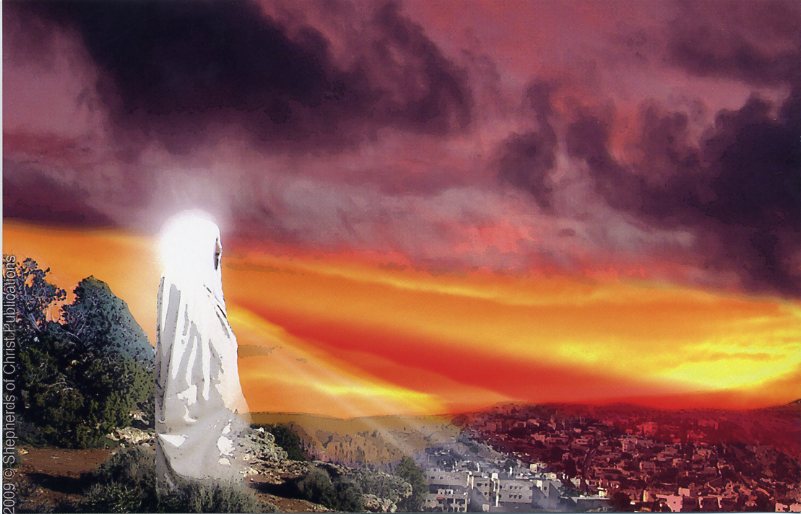
To do our best
Jesus prayed over the city of Jerusalem
Not want power for our vain glory
Not want money as a god, God wants us to live more the
resurrected life.
(2) To die to those ways not like Jesus —
Fr. Joe said his mom said
"Even if I don't see you - God does see you" —
In the Holy Sacrifice of the Mass we are to die to our impure ways,
to have a contrite heart, to want to die to those sinful habits in our lives,
to live according to God's will, like Jesus showed us on the cross
to live more the resurrected life in Him.
(3) Cleaning in the Mass — Penitential Rite —
God wants a Contrite heart — God wants us being sorry for our sins —
We come to offer a holy sacrifice, a more pure offering of ourselves —
united to Jesus — offering ourselves to the Father in the Holy Spirit.
Having the right interior disposition at church —
At the Preparation of Gifts we prepare our gift for God
The priest washes his hands —
A drop of water is put into the wine —
Christ's Divinity mixes with our humanity —
We give ourselves as a sacrifice
an offering united to the sacrifice of Jesus to the Father —
We want our sacrifice to be pure —
We give our hearts to Jesus and Mary —
We want to die to our tainted ways —
We are sorry for offenses against God and others —
We want to offer a holy offering of ourselves
and die to our ways not likened to God —
Jesus is the unblemished Lamb of God
We are sorry for our sins
We have a contrite heart
Christ's redemptive activity can be placed within the framework of sacrifice, a framework that had been developing over the centuries before the coming of Jesus. The theology of sacrifice can be summarized according to five elements: (1) the interior offering; (2) the external, ritual offering centered around a victim; (3) the immolation of the victim; (4) the acceptance of the sacrifice by God; and (5) the sacrificial meal.
In Jesus' sacrifice, the same five elements occur, although not exactly in the same order. There is the interior offering; Christ as priest offers himself to the Father in love for the purpose of adoration, thanksgiving, petition, and satisfaction for sin. This interior offering is then externalized at the ritual of the Last Supper. The victim, Jesus himself, is immolated upon Calvary. The Father gives a miraculous sign that he accepts Jesus' sacrifice through the resurrection. Finally, there is the sacrificial meal at the Last Supper.
The Mass is the Sacrifice of Calvary sacramentally made present through the consecrated hands of the priest.
The last element of the eucharistic sacrifice, the meal, is, obviously, a very important part. The Eucharist as meal is a rich reality. It is the sign of Jesus' complete self-giving and, consequently, a sign of Jesus' fathomless love for us. This sign actually contains what it signifies. In the Eucharist, Jesus comes to us in his entirety. There is no holding back on his part; his boundless love for us results in boundless giving.
If the Eucharistic meal is a sign of Jesus' self-giving, it is also a sign of our self-giving. In receiving divine food, we pledge ourselves to a deeper God-like existence. We pledge that, in love, we will strive for a more radical giving of ourselves to both God and others. Each eucharistic meal that we participate in is a new opportunity for a more perfect assimilation to Christ and his mysteries, especially the mysteries of death and resurrection. Each eucharistic meal that we participate in increases our responsibility to live Christ, that is, to more fully incorporate the Gospel ideal in all that we do.
The fact that our participation in the eucharistic meal is a sign of our self-gift not only to God in Christ, but also to one another leads us to a consideration of the communal aspect of the meal. The eucharistic meal is a great sign and cause of our unity in Christ. Rahner maintains that "insofar as everyone participates in the same meal of Christ, who is the giver and the gift at the same time, the Eucharist is also the sign, the manifestation and the most real actualization of the church insofar as the church is and makes manifest the ultimate unity of all men in the Spirit, a unity which has been founded by God in grace" (Foundations of Christian Faith, p. 427). We are therefore to receive the one and same Christ, the implications of which are far-reaching. In receiving the one and same Christ we are actually pledging ourselves to unity both among ourselves and with all mankind. We are pledging ourselves to uproot from our hearts those attitudes that work against the building up of community in the Church and in the world. We are pledging ourselves to look upon others with a sense of respect, love, and even wonder as we marvel at how God's love has created and redeemed each one, at how the blood of Jesus has salvifically touched each one. Our participation in the eucharistic meal truly pledges us to these ideals. We, for our part, must ask ourselves whether we are actually assimilating these ideals. We must ask ourselves whether we are allowing the Eucharist to transform us into more loving and concerned persons, persons less and less influenced by forces that disrupt and tend to weaken and destroy communal unity.
The discussion of the communal aspect of the eucharistic meal reminds us that the entire eucharistic sacrifice is a covenant act. What is covenant? In the context of salvation history, a covenant is an agreement, a bond, a union, a life relationship both between God and his people and among the people themselves. At the Last Supper, Jesus emphasized the covenant aspect of the Eucharist: "During the meal Jesus took bread, blessed it, broke it, and gave it to his disciples. 'Take this and eat it,' he said, 'this is my body.' Then he took a cup, gave thanks, and gave it to them. 'All of you must drink from it,' he said, 'for this is my blood, the blood of the covenant, to be poured out in behalf of many for the forgiveness of sins' " (Mt 26:26-28).
When Jesus speaks of his blood as "the blood of the covenant," we are reminded that blood sealed or ratified the Mosaic covenant at Mt. Sinai. Moses sprinkled blood upon the altar, which represented God, and upon the Jewish people. Because blood was a distinctive symbol of life for the Jews, such an action had a deep significance for them. This action of Moses symbolized the sealing or ratification of the covenant—a new life relationship between Yahweh and the Jews.
The blood of Jesus has also formed a covenant—the new covenant. In the shedding of his blood, Jesus has established a new life relationship between his Father and mankind. Forming a core focal point of redeemed mankind are the people of the new covenant, namely, the members of the Christian community, the Church. The Eucharist, in recalling and sacramentally re-enacting the shedding of Jesus' covenant blood, is the Church's great covenant act. The Eucharist sustains the life of the covenant, nourishes it, causes it to grow to greater maturity. Through participation in the eucharistic liturgy we should be growing in covenant attitudes—in a sense of community, in a deep love of the Church, in a desire to contribute our share to the building up of this Body of Christ. We should be learning to curb our selfishness because it deadens a dynamic concern for the Christian community and makes us a burden to the brethren. Participation in the Eucharist should also be curbing divisive jealousy, forming us more and more as persons who want to deeply love one another so that it can more often be said of us, "See those Christians, how they love one another." The Eucharist can more radically shape us according to these covenant attitudes if we allow it. We repent concerning the times we have resisted; we rejoice concerning the times we have opened ourselves to the Eucharist's transformative power.
(4) Jesus' body was pierced for our sins —
Say we are sorry for our sins —
Death/Resurrection
I am sorry Jesus —
Know our sins — be sorry
(5)
John 19: 25-27
Near the cross of Jesus stood his mother and his mother’s sister, Mary the wife of Clopas, and Mary of Magdala. Seeing his mother and the disciple whom he loved standing near her, Jesus said to his mother, ‘Woman, this is your son.’ Then to the disciple he said, ‘This is your mother.’ And from that hour the disciple took her into his home.
(6)
John 19: 31-42 It
was the Day of Preparation, and to avoid the bodies’ remaining on
the cross during the Sabbath—since that Sabbath was a day of special
solemnity—the Jews asked Pilate to have the legs broken and the
bodies taken away. Consequently the soldiers came and broke the legs
of the first man who had been crucified with him and then of the
other. When they came to Jesus, they saw he was already dead, and so
instead of breaking his legs one of the soldiers pierced his side
with a lance; and immediately there came out blood and water. This
is the evidence of one who saw it—true evidence, and he knows that
what he says is true—and he gives it so that you may believe as
well. Because all this happened to fulfil the words of scripture:
Not one bone of his will
be broken;
and again, in another place scripture says:
They will look to the
one
whom they have
pierced. After this, Joseph of Arimathaea, who was a disciple
of Jesus—though a secret one because he was afraid of the Jews—asked
Pilate to let him remove the body of Jesus. Pilate gave permission,
so they came and took it away. Nicodemus came as well—the same one
who had first come to Jesus at night–time—and he brought a mixture
of myrrh and aloes, weighing about a hundred pounds. They took the
body of Jesus and bound it in linen cloths with the spices,
following the Jewish burial custom. At the place where he had been
crucified there was a garden, and in this garden a new tomb in which
no one had yet been buried. Since it was the Jewish Day of
Preparation and the tomb was nearby, they laid Jesus there.
(7)
Lamb of God Lamb of God, Who takes away the sins of the
world, have mercy on us.
Lamb of God, Who takes away the sins of the world, have
mercy on us.
Lamb of God, Who takes away the sins of the world, grant us
peace.
(8) Jesus taught us to do God's will.
(9)
John 6: 48-58
I am the bread of life.
Your fathers ate manna in the desert
and they are dead;
but this is the bread
which comes down from heaven,
so that a person may eat it and not die.
I am the living bread
which has come down from heaven.
Anyone who eats this bread
will live for ever;
and the bread that I shall give
is my flesh, for the life of the world.'Then the Jews started arguing among themselves, 'How can this man give us his flesh to eat?' Jesus replied to them:
In all truth I tell you,
if you do not eat
the flesh of the Son of man
and drink his blood,
you have no life in you.
Anyone who does eat my flesh
and drink my blood
has eternal life,
and I shall raise that person up
on the last day.
For my flesh is real food
and my blood is real drink.
Whoever eats my flesh
and drinks my blood
lives in me
and I live in that person.
As the living Father sent me
and I draw life from the Father,
so whoever eats me
will also draw life from me.
This is the bread
which has come down from heaven;
it is not like the bread our ancestors ate:
they are dead,
but anyone who eats this bread
will live for ever.
(10)
From the Mass Book
January 2, 1997
"In the name of the Father, and of the Son, and of the Holy Spirit, Amen."
"The grace of our Lord, Jesus Christ, and the love of God and the fellowship of the Holy Spirit be with you all."
God pours out His grace in this Holy Sacrifice of the Mass. It is the greatest gift when God gives Himself to us.
We share with God His life, given to us abundantly in the Mass.
He gives Himself to us, and we give ourselves to Him. The great love affair between God and man: His Holy Mass.
The priest is another Christ to us. It is Christ present, through the priest, celebrating the Mass. We must see Christ in the priest, see Him celebrate the Mass, see His beautiful brown hair, His gentle face, see Him, Our Savior. This Jesus Christ that came was born an infant and gave Himself to His death on the cross that we would share His life. See Him now in the Mass, giving Himself in the greatest gift of all. He gives us His divine love and His divine life.
Oh, we thank You for Your life. We know He died and rose and gave us a sharing in His holy life. His life is now abundantly poured, as a fountain to us, especially in the Mass.
Then we hear His Word. Let the Word of God penetrate our being. Let us feel this Living Word of God. As a two-edged sword, it comes forth with such conviction and love and it penetrates the souls of the faithful with such love. It is food indeed, food for our soul.
He is the Good Shepherd. He speaks to us. He gives us all we want. "There is nothing I shall want." (The Lord is my shepherd; I have everything I need. Ps. 23:1).
He gives us green pastures, and His water pours out and refreshes us. He outpours His grace as a fountain to feed us with His life.
He is a just God, good and kind, all loving, for He is love. We want for nothing for He outpours His love and His life to us in the Mass. We feast on His Body and Blood and are fed with His Word. We become one in Him and He shares Himself with us.
It is through the Mass celebrated by the hands of a holy pries that we will experience the Mass the way Christ intends. These writings are insights which hopefully will help lead you to the spring of life-giving water, the fountain of love and life He outpours in the Mass.
There will be a new earth when men will see with the light of seven suns. They will know God. A people walking in darkness will see a great light. They will no longer be blind, they will be enlightened, they will love God with the greatest love in the Mass. They will feast on His Body and Blood and will be united as one body in His holy Church through His life given to us in the Eucharist.
We will drink copiously from the fountain of grace which He pours out in the Mass. We will be filled with His love, absorbed with the love of the Father, Son, and Holy Spirit and feasting on His divine life.
We see with the vision of God. We partake in such a union with God. We see with the light the Spirit gives to us. The priest celebrates the Mass and we know God with such an intense knowing in this union. We are saturated with His life flowing from the hands of His consecrated priest.
And I look at Him, the priest, and I see Jesus there. I see Him giving Himself to me. I see the new and Holy City. I see with such clarity the great gift that God gives to us in the Mass!
We learn how to love in the Mass, for we unite to God. He gives us such an intimate sharing in His divine love that we carry His love out to the world. In this union we know His loving to an intense degree and we carry this love out to others. We share in an intense way in His divine act of loving. He, Who is Love, gives Himself to us and we are absorbed in His love and we know intensely how God loves. We are filled with love for God and for each other, for, in the oneness He is loving through us. He gives us lights into His loving capacity and we know His loving power in an intensity we did not know before.
We then pray. We offer up our intentions for this Mass. It is now we who intercede to Him to outpour His grace on us and help us with these intentions.
We pray for this reign of peace when the Sacred Heart of Jesus will reign and the Immaculate Heart of Mary will triumph and men will fervently love and adore God with burning love. We pray for all souls and the Church and we beg for His help, His love, His grace.
We offer ourselves as a sacrifice. We offer the bread that will become the Bread of Life.
The priest mixes the water and the wine and we realize how His Divinity mixes with our humanity.
We offer the wine that will become our spiritual drink—His Blood.
I give myself to Him and I beg to be cleansed of my sins with the washing of the hands.
"May the Lord accept the sacrifice of your hands for the praise and glory of His name, for our good and the good of all His Church."
We ask Him to accept the gifts we want to give Him, we give Him thanks, we lift up our hearts in thanks and praise and we sing out:
"Holy, Holy God, of power and might..." we sing Him praise and thank Him, "Oh, God we love thee so much."
My heart is so filled with such awe. I cry because I love Him so much.
Every word in the Mass, I love. The priest consecrates the Host and changes it into the Body and Blood of Christ. Hear Christ say to us: "This is My Body", "This is My Blood".
Oh, it makes me cry for I am so struck with awe at what happens at the Consecration. I unite in the oneness with the priest, with Christ and with all present, with heaven and earth. I am one in that moment, united in the sacrifice of Christ giving Himself to the Father.
This is the moment when I unite in such oneness with Christ in the purity of Mary's heart. I give myself as a sacrifice. I offer myself to the Father.
The Father looks down and He sees us united to His Son's Sacrifice. It is in this oneness that His grace is outpoured on us, that we die to that which is not like Him and that the Holy Spirit works in the heart of Mary and fills us with His life.
I am in ecstasy as I realize more and more the great gift of love that God gives us in His holy Mass. I am taken to such heights, being wrapped in the presence of God. It is rapture, this Holy Sacrifice of the Mass.
It is a great gift, experiencing this intense presence of the Almighty God: Through Him, With Him, and In Him.
We pray to the Father the prayer as Jesus taught us and beg, "Thy Kingdom come, thy will be done on earth as it is in heaven."
We pray: "For the Kingdom, the power and the glory are Yours, now and forever."
We beg for peace in our hearts. We share this peace with one another. Then we beg of the Lamb of God. I want to get down to the ground and beg for His grace, mercy, and forgiveness for our sins.
Please, God, I see us as a sinful people. I want the grace and mercy to flow abundantly.
He raises the Host and says: "This is the Lamb of God who takes away the sins of the world, happy are those who are called to His supper."
We respond: "Lord, I am not worthy to receive You, but only say the word and I shall be healed."
I receive the Almighty God in Communion. All I want is Him. Oh, God, I want You, I adore You, I worship You, I love You.
Oh, for this moment when God gives Himself to me. Oh, God, words do not express this time—this intense presence of You within my being. Oh, sweet Savior, I love You!
You share Yourself so intimately with me. You imprint on my soul a knowing of Your Divine Being that is so intimate in this Communion when You give Yourself to me.
Oh, let our hearts be open to His grace that we may know this great gift more, that we will partake more fully in this greatest act of love with Divinity.
He shares Himself with us, the Almighty God, in such oneness. This is the greatest way to bind us with each other, to unite with each other in the Mass and Communion.
And so I sing the love of God, the love of His Mass. I beg you to pray for the grace that He can teach you in these writings about His most intimate love affair with man, the gift of Himself—the gift He gives us in the Mass.
The Holy Sacrifice, the sacrifice of Calvary, sacramentally-made-present in the Mass when He gives Himself to us with the greatest love!
And what does He ask in return? He asks that we love one another, that we give Him the glory, the thanksgiving, the adoration that is His due as the Almighty God.
He sends us forth with His blessing to share His most intimate love with all. We go forth as other Christs in the world. For He is alive this day and He lives in us and He gives His love to others through us. We act as channels of His life to one another.
The Mass is the richest source of His life. His life flows through the body, the Church, especially through the sacraments and the Mass.
Oh Jesus, from the fountain of life that pours forth from your pierced Heart, give us holy priests whose hearts are consecrated to the Hearts of Jesus and Mary to celebrate the Mass—that there is such oneness between the priest and Christ that His grace will flow copiously.
We thirst for the fountain of life pouring forth from the pierced Heart of Christ. It is His life we seek and find in the Church. It is His love we want and we experience the greatest love affair with God in the Mass.
These books on the Mass are accounts of my intimate love affair with our Almighty God. Many experiences were enlightenments I received in the Mass.
I strongly advise all to pray, to say the Holy Spirit Prayer, the consecration prayers, and the Prayer before the Holy Sacrifice of the Mass, before Mass.
This book is the journey into the red room, the inner chamber of the Sacred Heart of Jesus, through the gateway, the pure and Immaculate Heart of His Mother.
It is in the Mass we give ourselves in such love to our Holy God. He gives Himself to us and we give ourselves to Him.
end of January 2, 1997
A Prayer before the Holy Sacrifice of the Mass
Let me be a holy sacrifice and unite with God in the sacrament of His greatest love.
I want to be one in Him in this act of love, where He gives Himself to me and I give myself as a sacrifice to Him. Let me be a holy sacrifice as I become one with Him in this my act of greatest love to Him.
Let me unite with Him more, that I may more deeply love Him. May I help make reparation to His adorable Heart and the heart of His Mother, Mary. With greatest love, I offer myself to You and pray that You will accept my sacrifice of greatest love. I give myself to You and unite in Your gift of Yourself to me. Come and possess my soul.
Cleanse me, strengthen me, heal me. Dear Holy Spirit act in the heart of Mary to make me more and more like Jesus.
Father, I offer this my sacrifice, myself united to Jesus in the Holy Spirit to You. Help me to love God more deeply in this act of my greatest love.
Give me the grace to grow in my knowledge, love and service of You and for this to be my greatest participation in the Mass. Give me the greatest graces to love You so deeply in this Mass, You who are so worthy of my love.
-Mass Book, December 27, 1995
December 27, 1995
L
ET US LOVE THE TWO HEARTS OF JESUS AND MARY
IN THE RECEPTION OF THE HOLY EUCHARIST.HE GAVE HIMSELF TO US ON THE CROSS. HE GIVES HIMSELF TO US IN THE EUCHARIST.
How great was the act of love, God gave to this world, when He gave Himself and died on the cross. He gives Himself to us this day in the Holy Eucharist.
The greatest commandment is that we must love God with our whole heart, our whole soul, and our whole being. This is a commandment. If we are to enter heaven, we must follow the commandments. They are commands given by God for us to follow.
The greatest act we can do on this earth is an act of loving God. The reason for our existence is to love God. In the sacrament of His greatest love, He gives Himself to us. This is an act of love on His part. We are called to respond by giving ourselves in love to Him.
This is the purpose of the Holy Eucharist: to unite in such oneness with our Holy, Loving God. Our all consuming passion should be that of loving God. How many go to the Eucharist with the sole purpose of giving great love to God? He wants us to love Him. He wants souls to tell Him how much they truly love Him. This is the most intimate act of love when Jesus gives Himself-Body, Blood, Soul, and Divinity to man. If it is such an act of love, how are we receiving Him in Communion? We should beg God, in this most intimate union with Him, to help us to love Him with greatest love.
Jesus is a Person. He wants our love. The Holy Spirit wants such intimacy with us. Our Father wants us to love Him. In the Eucharist, we unite with God. In this intimate act of uniting with our beloved God, with Divinity, we must pour out our love to God. We must pour out our heart to the most adorable Heart of Jesus. Jesus is so unjustly treated by many of His beloved souls He loves so much. Let us help make reparation to the Almighty God by loving God with our whole heart, our whole soul, and our whole being in the sacrament of His greatest love. This is the Gift of Himself.
Think of how it is to love someone and give your all for that person, to pour out your heart to him or her and then be treated with coldness and neglect. It hurts our heart so much more when we deeply love someone to be rejected by that person. Jesus loves us with the deepest love. We cannot fully comprehend this love. Let us love Him with the deepest love. Let us love Mary and her Immaculate Heart. Let us love her as the Mother of God. Let us love her as the virgin who bore the Son of God. May we, in the reception of the Eucharist pour out our love to Him, to this adorable Heart. May we pour out our love to His Holy Mother.
Mary said at Fatima that Jesus wants His Heart venerated next to the heart of His Mother. Let us love these two Hearts as we receive the Sacrament of the Eucharist. Then we are so deeply united with God. We see Their two Hearts surrounded with thorns for the injustices against Their Hearts. Let us help make reparation daily as we receive Him in the Eucharist. This is a special time to help make reparation to Their wounded Hearts.
Let us remember how He poured His love out to us on the cross and how He pours out His love to us now when He gives us Himself in the Eucharist, the Eucharist which contains His Heart of burning love. His Heart was pierced with a lance. Her heart was invisibly pierced with a sword. As the wounds in Their Hearts are deep, so too is Their love so deep.
He does not want "surface love". He wants hearts filled with deep burning love.
end of December 27, 1995
Prayer from St. Ignatius
Lord, teach me to be generous.
Teach me to serve you as you deserve;
To give and not to count the cost;
To fight and not to heed the wounds;
To toil and not to seek for rest;
To labor and not to ask for any reward,
Save that of knowing
that I am doing your will.
Prayer of St Ignatius
Soul of Christ, sanctify me
Body of Christ, save me
Blood of Christ, inebriate me
Water from the side of Christ wash me
Passion of Christ, strengthen me
O good Jesus, hear me
Within Thy wounds hide me
Permit me not to be separated from Thee
From the wicked foe defend me
at the hour of my death call me
and bid me come to Thee
That with Thy saints I may praise Thee
For ever and ever. Amen.
From The Spiritual Exercises of St. Ignatius,
by Louis J. Puhl, S.J. p. 12
23. FIRST PRINCIPLE AND FOUNDATION
Man is created to praise, reverence and serve God
our Lord, and by this means to save his soul.
p.11
21. SPIRITUAL EXERCISES
Which have as their purpose the conquest of self
and the regulation of one's life in such a way that
no decision is made under the influence of any
inordinate attachment
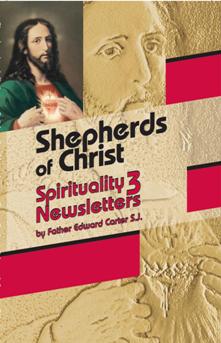
From the Priestly Newsletter Book III - 2000 Issue 3
The Father's Will for Us - Our Source of Peace
Pope John Paul II instructs us: "The Church, as a reconciled and reconciling community, cannot forget that at the source of her gift and mission of reconciliation is the initiative, full of compassionate love and mercy, of that God who is love (see 1 John 4:8) and who out of love created human beings (see Wisdom 11:23-26; Genesis 1:27: Psalms 8:4-8)…He created them so that they might live in friendship with Him and in communion with one another.
"God is faithful to His eternal plan even when man, under the impulse of the evil one (see Wisdom 2:24) and carried away by his own pride, abuses the freedom given to him in order to love and generously seek what is good, and (instead) refuses to obey his Lord and Father. God is faithful even when man, instead of responding with love to God’s love, opposes Him and treats Him like a rival, deluding himself and relying on his own power, with the resulting break of relationship with the One who created him. In spite of this transgression on man’s part, God remains faithful in love.
"It is certainly true that the story of the Garden of Eden makes us think about the tragic consequences of rejecting the Father, which becomes evident in man’s inner disorder and in the breakdown of harmony between man and woman, brother and brother (see Genesis 3:12 ff; 4:1-16). Also significant is the Gospel parable of the two brothers (the parable of the ‘prodigal son’; see Luke 15:11-32) who, in different ways, distance themselves from their father and cause a rift between them. Refusal of God’s fatherly love and of His loving gifts is always at the root of humanity’s divisions.
"But we know that God…like the father in the parable (of the prodigal son), does not close His heart to any of His children. He waits for them, looks for them, goes to meet them at the place where the refusal of communion imprisons them in isolation and division. He calls them to gather about His table in the joy of the feast of forgiveness and reconciliation.
"This initiative on God’s part is made concrete and manifest in the redemptive act of Christ, which radiates through the world by means of the ministry of the Church." 13
13. Pope John Paul II, as in Celebrate 2000!, Servant Publications, pp. 140-141.

I Died for You
February 23, 1994
Jesus: I want this emotion in the letter I told you to write. I, Jesus, Son of God, talk to you with such emotion! I am He Who died a brutal death for love of you. I died for you! I love you this much, to give My Life! Yet you couldn't even write when I asked you. You must do exactly as I say. I do not want you ever to say no to Me!
I have such emotion! I am telling you how I died a brutal death and you, My child, did not write for Me! What more can I do? What more do they want? You put others before Me or you would do as I command. I want you to do as I tell you every moment.
I am the Lord. I am the Son of God. Such emotion I let you feel for My death. I died. I am a person. I was human and I died for you. Think of yourself giving your life for someone and they do not care. What can I do to shake you? What more can I say? I am here and I am loving you and pleading with you to listen to Me with this emotion that God is telling you. I am Jesus. I died for you. I gave My life for you and do you even listen, My little sweet one? You didn't want to write it for My children. When I give you a command, you write. When I say do, you do. Selflessness! I am pushing you because I need your total surrender. Do not ever deny My writing to My loved ones. You have a responsibility. I don't care where you are when I talk. I am God and I talk to you. I am so present to you.
Listen. I need your selflessness. I need your surrender. I need your life, given for love of Me and Me alone. I need you to be the light that shines on the hill, that does not go in and out but is constant in My love. I need your commitment. I need your attention at every moment. I am feeding you My words every moment on paper and in your hand. You must obey Me exactly as I command. No questions, only action. I want action. Now! You write when I say write. I don't care where you are. You worry not for others. I am giving you the mighty medicine. Would you tell the doctor to wait? I am God and I do not ever want to wait while you play a safe game with Me. When I say do something, I want you to do it. You are My beloved and I am filling you with fire.
I am pushing you to do that which I need done. Do not ever stop to look around. Keep your focus on Me and My commands for you. I am using you every moment. I must be able to count on your constant consent to do My will immediately! I am calling you to this work and I want you to comply. I love you ardently. I am so full of love for you. Focus on this and this alone. I am Who am. I am God, child. Do not ever hesitate. Do not doubt or think. You must act as I act in you or My work will not be done.
Be selfless about My commands. You will do My work. You will spread My words of love and create emotion with My songs and I will use you to bring My flock to My love. I love every soul! You must spread My love.
Note: (Meditating on the Crucifixion) Going to Mass at the seminary at 8:00 a.m. was rushed. He said to me, "Where are you going, child. Do you not feel My presence with you?" A calm came over me. Then He started lamenting how He died for us, how He is a true person and He loves us so much. He said, "I died for you."
R. He gave His life for us. He is the little lamb led to the slaughter out of love for us. He said, "I need you to do this work now and I am pushing you." He was so upset! He died for us. He loves us so much as to give His life.
He begged me to spread His love, to tell others how He, bloodied, bruised and beaten, gave us His life.
Jesus: I am God. I am God. I died. Spread My love now! Now! Now! Now! Now! I am begging you not to hold back! Read these letters now, read and learn about My love. I beckon you to speak of My love. Shout it from the high roof. Proclaim it in the cities. Jesus Christ died for love of you and He is risen! I am He Who is God and I died for you!
Listen and preach My love and emotion here. Priests will create little cities, little cities in each church to spread the light of Christ to this sick world. Each priest can create his own little city, a powerhouse of God's love. God has all the power. His power is endless. It never runs out. It is might. You have no power except through Him. Churches filled with the intimate love of Jesus will be powerhouses.
I am God, My little ones. God can do all things. I can make your cities light up the darkness. I am the Way, the Truth, the Life. I am the light of life. I am God! I can do all things. I want to act in you. You need to be in constant union with Me. My priests, you need to be selfless. My soul and yours are one. I want to act in you.
Hold not back. Pray the Prayer for Union with Me.
end of February 23, 1994
13 Years Ago

Available for $10.00 plus postage
1-888-211-3041
Call Shepherds of Christ

shipped from the printers |
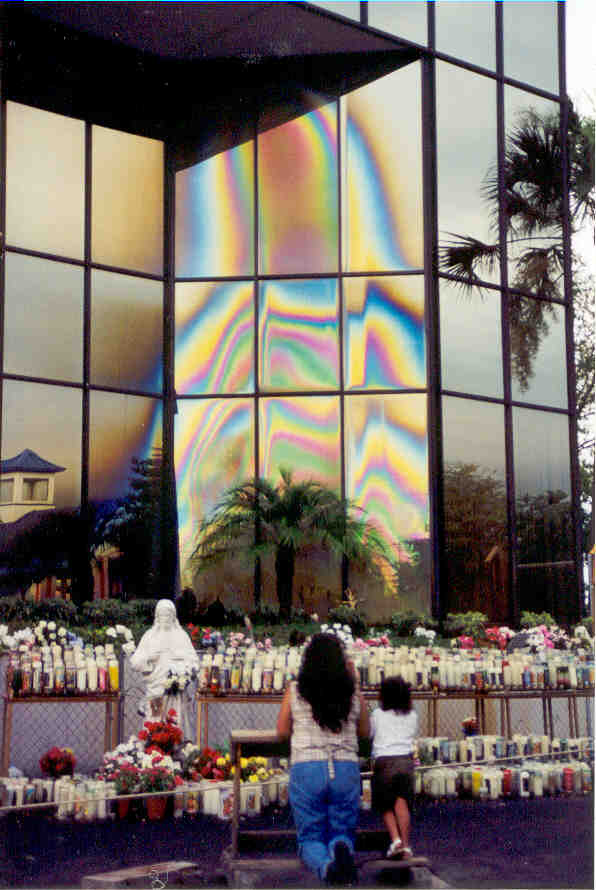
Mary appeared |
Excerpt from the Talk of February 13, 1997
by Fr. Edward J. Carter, S.J.
She’s referring to a book which Shepherds of Christ Publications came out right around Christmas time. Hopefully all of you have received it in the mail, Rosaries from the Hearts of Jesus and Mary, as given to Rita. Now here’s the point I want to make here and now. Notice how she links up the apparition site with the circulation of her Rosary Book, and we are circulating the book there. But to me, there’s a very great phenomenon connected with the colors on the window, bank windows and the Rosary Book. And Rita herself pointed this out to me. Now this cover on this book-it was designed by Hal K. weeks and even months before the apparition of Our Lady on the bank in Florida. When did you start to design that Hal? (question asked to Harold K.) Almost, two years ago. And the colors were already selected months ago, right? Well if you’ll take the picture of the bank of the apparition of the bank on Florida, and this Rosary Book, you will notice that the colors are the same. To me, that’s a miraculous confirmation of the fact that Our Lady is connecting the apparition site on the bank in Florida with the Shepherds of Christ Ministries in a special way with the rosaries. It’s just phenomenal. You can check the colors out one by one. They’re a little bit brighter on the book, but because of the photography involved I think you can see how they wouldn’t be quite as bright on this. But check out the colors. They’re the same on the Rosary Book and on this. And these colors, as I say, were picked by Hal months and months before the apparition. You can take it for what you want, but for me it’s a miraculous confirmation of this message, that Our Lady chose those same colors which are on the front of her Rosary Book, to show the same colors relative to her apparition there on the bank in Florida.
Prayer for Union with Jesus
Come to me, Lord, and possess my soul. Come into my heart and permeate my soul. Help me to sit in silence with You and let You work in my heart.
I am Yours to possess. I am Yours to use. I want to be selfless and only exist in You. Help me to spoon out all that is me and be an empty vessel ready to be filled by You. Help me to die to myself and live only for You. Use me as You will. Let me never draw my attention back to myself. I only want to operate as You do, dwelling within me.
I am Yours, Lord. I want to have my life in You. I want to do the will of the Father. Give me the strength to put aside the world and let You operate my very being. Help me to act as You desire. Strengthen me against the distractions of the devil to take me from Your work.
When I worry, I have taken my focus off of You and placed it on myself. Help me not to give in to the promptings of others to change what in my heart You are making very clear to me. I worship You, I adore You and I love You. Come and dwell in me now.
-God's Blue Book, January 17, 1994
Come to Florida Retreat December 2nd - 5th
Florida 13 years — come and pray for the
priests, the Church and the world
December 17, 2009
China Retreat
Mass December 10th, 11th, 12th, 13th
Come and pray
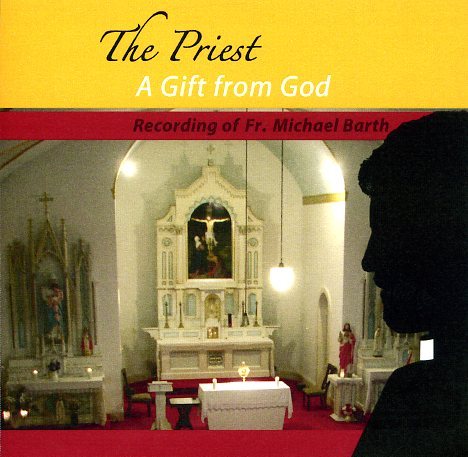
Prayer Cards available
Holy Spirit Prayer Act of Consecration to
Immaculate Heart of MaryAct of Consecration to
Sacred Heart of JesusPrayer for Priests
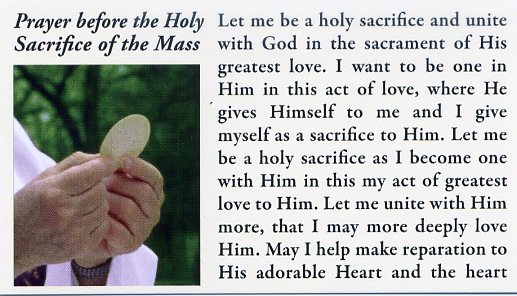 |
| Prayer before the Holy Sacrifice of the Mass |
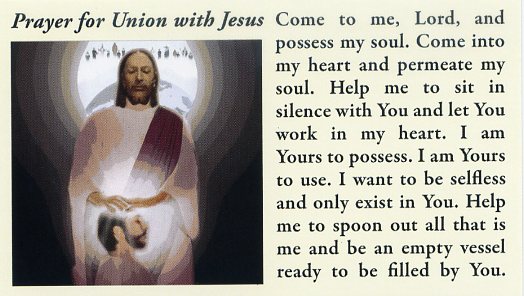 |
|
Prayer for Union with Jesus |
Available for .25¢ each plus postage
Call Shepherds of Christ
1-888-211-3041
Prayer Card 4" x 6"
.50¢ each plus postage
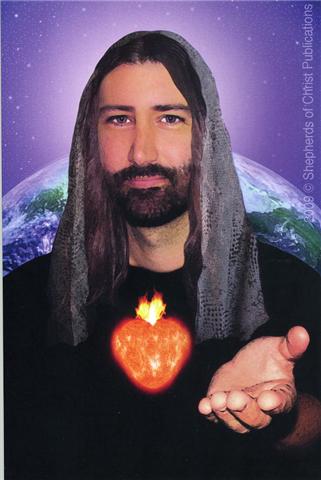

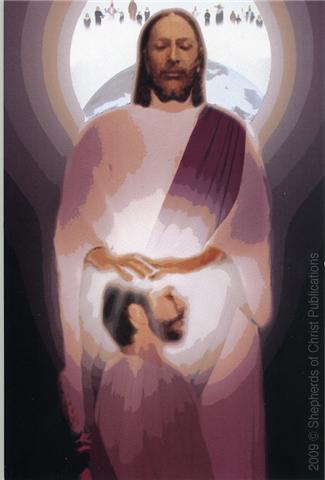


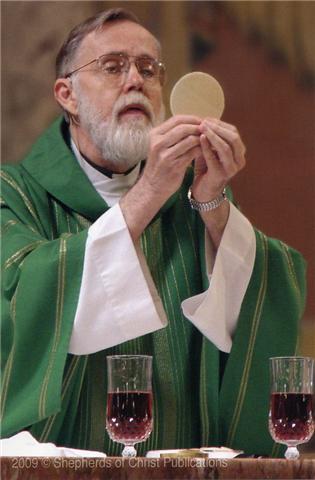
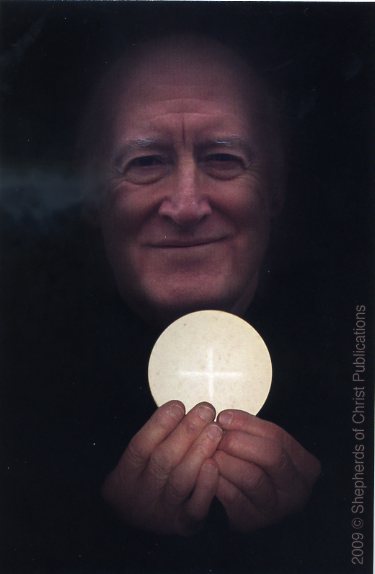
size 5 1/2" x 8 1/2"
$1.00 plus postage
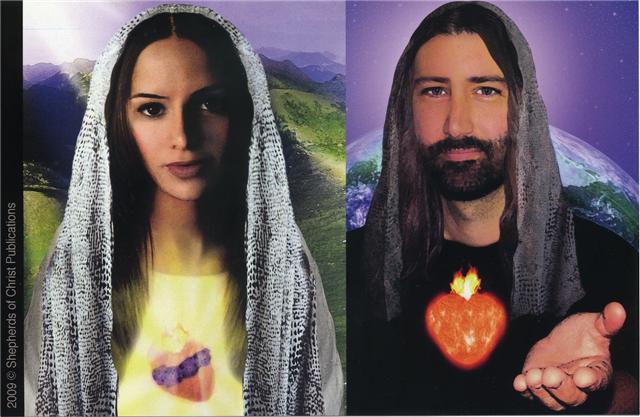
Statues
Sacred Heart of Jesus w/glass - 18
Our Lady-Guadalupe w/glass - 12
Limpias - 8
Immaculate Heart w/glass - 18
I Heart - Ivory w/glass - 18
Our Lady of Grace w/glass - 18
Our Lady-Mt. Carmel w/glass - 18
Our Lady of Lourdes w/glass - 18
Infant of Prague w/glass - 24
Sacred Heart of Jesus w/glass - 24
Sacred Heart -Blessing w/glass - 24
Sorrowful Mother w/glass - 24
I Heart - Ivory w/glass - 24
I Heart of Mary w/glass - 24
Our Lady of Lourdes w/glass - 24
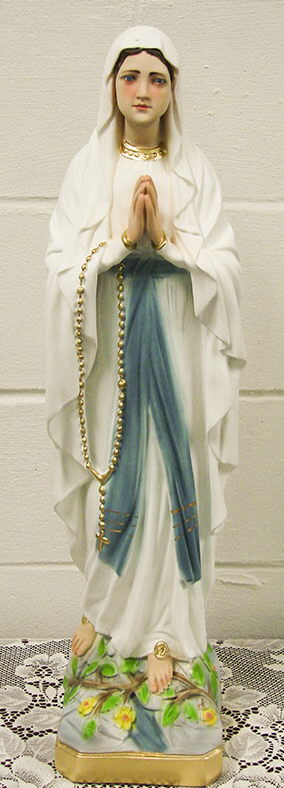
Our Lady-Guadalupe w/glass - 28
Our Lady of Grace w/glass - 24
Our Lady-Mt. Carmel w/glass - 24
Fatima w/glass - 11
Pilgrim Virgin w/glass - 12
Pilgrim Virgin w/glass - 15
Fatima w/glass - 18
Pilgrim Virgin w/glass - 18
Pilgrim Virgin w/glass - 27
St. Padre Pio
St. Joseph
St. Therese
St. Francis
St. Anthony
St. Claire
Limpias
St. Jude
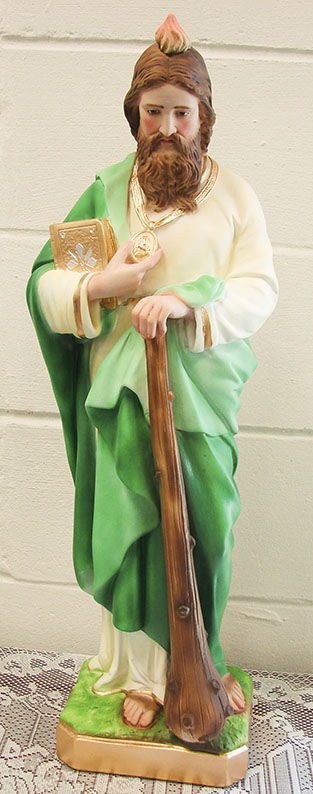
Divine Mercy
Holy Family
Angel
St. Philomena
Pieta - Marble
Pieta - Color
Holy Family
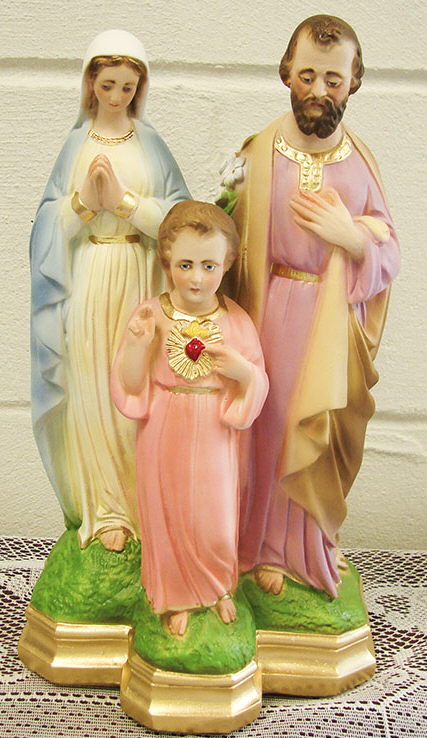
St. Anthony - 18
St. Francis - 18
St. Joseph - 18
St. Therese - 18
St. Rita - 18
St. Clare - 12

St. Rita - 12
St. Padre Pio - 12
Divine Mercy - 12
Shepherds of Christ Ministries
P. O. Box 627
China, IN 47250
Toll free - 1-888-211-3041
Local - 1-812-273-8405
fax - 1-812-273-3182
web: www.sofc.org
e-mail: info@sofc.org
Size Price Quantity Holy Family
24"
$180
Limpias
24"
$125
St. Anthony
24"
$125
St. Claire
24"
$125
St. Francis
24"
$125
St. Joseph
24"
$125
St. Jude
24"
$125
St. Padre Pio
24"
$125
St. Therese
24"
$125
Divine Mercy 22"
$125 Angel 22"
$100 St. Philomena 20"
$100 St. Philomena 16"
$65 St. Joseph 18"
$65 St. Francis 18"
$65 St. Anthony 18"
$65 St. Rita 18"
$65 St. Therese 18"
$65 Pieta - Color 15" $75 Pieta - Marble 15" $75 Holy Family 12"
$60 St. Padre Pio - standing 12"
$40 St. Padre Pio - sitting 8"
$50 St. Rita 12"
$40 Divine Mercy
12"
$40 St. Claire 12"
$40 Limpias 8"
$25 Our Lady of Guadalupe w/glass 28"
$500 Our Lady of Mt. Carmel w/glass 24"
$500 Immaculate Heart of Mary w/glass
24"
$500 Immaculate Heart - Ivory w/glass
24"
$500 Infant of Prague w/glass
24"
$500 Our Lady of Grace w/glass
24"
$500 Our Lady of Lourdes w/glass
24"
$500 Sacred Heart of Jesus w/glass 24"
$500 Sacred Heart -Blessing w/glass 24"
$500 Sorrowful Mother w/glass
24"
$500 Immaculate Heart of Mary w/glass 18"
$300 Immaculate Heart - Ivory w/glass 18"
$300 Sacred Heart of Jesus w/glass 18"
$300 Our Lady of Lourdes w/glass 18"
$300 Our Lady of Grace w/glass 18"
$300 Our Lady of Mt. Carmel w/glass
18" $300 Our Lady of Guadalupe w/glass 12"
$200 Fatima w/glass
11"
$150 Fatima w/glass
18"
$250 Pilgrim Virgin w/glass 12"
$160 Pilgrim Virgin w/glass 15" $200 Pilgrim Virgin w/glass 18" $250 Pilgrim Virgin w/glass 27"
$450
Call for Shipping Price (1-888-211-3041)
Name
Sub-Total Address
IN Tax (7%) City
Shipping State Zip
Donation Telephone
Order Total
Shepherds of Christ
P. O. Box 627
China, IN 47250
Call Shepherds of Christ
1-888-211-3041
Fr. Joe's Homily Books
Guiding Light -
The Word Alive in Our Hearts$10.00
Guiding Light -
Focusing on the Word$10.00
Fr. Carter's Books
Priestly Newsletter Book I
12 Newsletters
July 1994 - June 1996$12.00
Priestly Newsletter Book 2
17 Newsletters
1996 - 1999$12.00
Priestly Newsletter Book 3
4 Newsletters & Prayers
2000$12.00
Synopsis of the Spiritual Life
Spirituality Handbook
$3.00
Messages given
by Jesus and Mary 1994
Tell My People
$10.00
The Pain and the Joy
$10.00
Priestly Newsletter on CD
2000 - Issue 1
$10.00
Priestly Newsletter on CD
2000 - Issue 2
$10.00
Fr. Pasquini's Books
Authenticity
Prayers and Meditations
$10.00In Imitation of Two Hearts
For those suffering or
in Nursing Homes
$10.00Light, Happiness and Peace
Journeying through traditional
Catholic Spirituality$10.00
Medicine of Immortality
Prayers and Meditations - will assist the reader in growth toward a deeper understanding of the mystery of the Eucharist
$10.00
Ecce Fides - Pillar of Truth
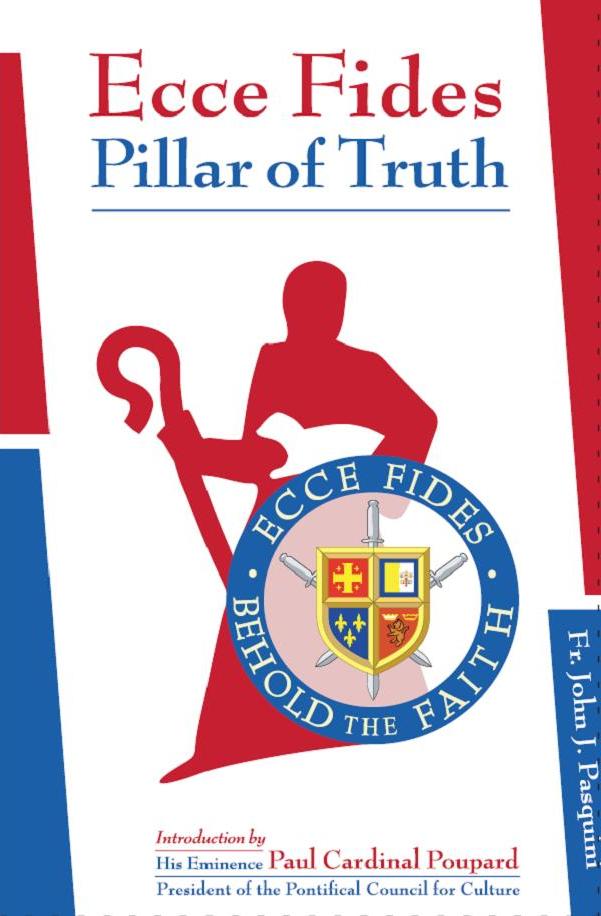
Ideal for RCIA, Adult & Youth Bible Study, Homeschooling, Catholic
Identity Studies$10.00
Shepherds of Christ Newsletters
9 Newsletters
2006 - 2008
$36.00
DVDs and CDs by Fr. Pasquini
Authenticity DVD
Prayers on the Ocean$10.00
Nursing Home Mass DVD
$10.00
Consolation DVD
$10.00
Medicine of Immortality
Read by Rita Ring2 CDs - $17.00
In Imitation of Two Hearts DVD
$10.00
Consolation CD
by Fr. John$8.00
Nursing Home Mass CD
$8.00
Holy Spirit Novena DVD
$10.00
Divine Mercy Chaplet DVD
$10.00
plus shipping
Call Shepherds of Christ
1-888-211-3041
God’s Blue Books
God’s Blue Book 1 –
Teachings to Lift You Up$10.00
God’s Blue Book 4 –
The Love of the Hearts of
Jesus and Mary$5.00
God’s Blue Book 2 –
The Fire of His Love$10.00
God’s Blue Book 5 –
So Deep Is the Love of His Heart$5.00
God’s Blue Book 3 –
Love God, Love One Another
(Fr. Carter's favorite)
$10.00
God’s Blue Book 6 –
He Calls Us to Action$10.00
Rosary Books

Available for $10.00 each plus postage
1-888-211-3041
Call Shepherds of Christ
We are trying to get
Response to God's Love
and the Mass Book out.
Anybody who wants to help us
with a donation to get these 2 books
out in the Priestly/hierarchy mailing —
Please call Shepherds of Christ
1-888-211-3041
July 31, 1994
Words of Jesus to Members of
Shepherds of Christ Associates:"My beloved priest-companion, I intend to use the priestly newsletter, Shepherds of Christ, and the movement, Shepherds of Christ Associates, in a powerful way for the renewal of My Church and the world.
"I will use the newsletter and the chapters of Shepherds of Christ Associates as a powerful instrument for spreading devotion to My Heart and My Mother's Heart.
"I am calling many to become members of Shepherds of Christ Associates. To all of them I will give great blessings. I will use them as instruments to help bring about the triumph of the Immaculate Heart and the reign of My Sacred Heart. I will give great graces to the members of Shepherds of Christ Associates. I will call them to be deeply united to My Heart and to Mary's Heart as I lead them ever closer to My Father in the Holy Spirit."
- Message from Jesus to Father Edward J. Carter, S.J., Founder, as given on July 31, 1994,
feast of Saint Ignatius Loyola, Founder of the Society of Jesus (The Jesuits)
The China Church is over 140 years old
and we pray in there 24 hours a day.
It needs stucco and so does
the community building.
Can you please help us?
Call Shepherds of Christ
1-888-211-3041
Likewise the priest house
is 150 years old.
Jesus told us to repair it
which we have been doing.
We need $13,000.00 for this work.
You can help put the Blue Book V
in the hands of 1,000 people
we need $1,200 postage for this
It is ready to go
Call Shepherds of Christ
1-888-211-3041
You can help put Fr. Joe's homily
book in the hands of
1,000 priests — it costs $1,100
This can help 1,000 parish priests
talk about Covenant for Lent
Please help us
It is ready to go
Call Shepherds of Christ
1-888-211-3041
Crucifix — hand carved by Felix
Available for $750.00
Brand New Internet Store